|
In a world where elocution and debate are renowned art forms, Luc Choong Guong Sang emerges as an exceptional master of both. His dedication and well-earned achievements highlight his intellectual prowess and hunger for personal growth.
Luc, youngest of three children, was raised by parents who worked as educators, growing alongside siblings who valued academic excellence. With his impressive performance in the classroom, it is hard to imagine this six-time Dean’s List recipient ever struggling in his studies. However, his academic journey prior to joining law school was never particularly impressive. Contrasting the high-achieving personas of his older siblings, his average grades and lackadaisical attitude in high school had constantly drawn negative attention from his teachers.
3 Comments
Hardworking, reliable, and intelligent. Anyone who has worked with Amiratu Al Amirat — alumna of the Faculty of Law, Universiti Malaya (‘UM’) — would recognise her defining characteristics from a mile away. A casual fan of horoscopes and their traits, this Virgo stays true to her sun sign with her compassionate nature and endless wit.
She was raised in a loving household in Shah Alam, and is the third child among her four siblings. Her Baba, or father, hails from the faraway land of Libya — a place that holds a special significance in her unique name, though her loved ones affectionately call her ‘Al’. Julia Zainal’s gentle and compassionate disposition is a breath of fresh air amidst the severe legal scene. Her selflessness and generosity have made her an endearing figure here in the Faculty of Law, Universiti Malaya (‘UM’).
Hailing from Selangor, Julia grew up with parents who always placed a lot of importance on education and consistently ensured their children were right on track. Her ambitions of becoming a lawyer and entering the Faculty were formed from a young age, thanks to her beloved father. It is not often that people enjoy the stress and adrenaline-induced thrill of a competitive environment, but Matthew Ooi Xian Wei is among the few that truly thrive in the face of an arduous challenge.
This business-oriented and determined spirit was raised in a humble abode in Petaling Jaya. His mother is a mathematics lecturer and his father is a successful lawyer. With such strong and academically inclined figures in his life, it is no wonder that a young Matthew strived for excellence and erudition early on in life. When asked if his father pushed him to study law, he responded: ‘No, that's not the reason I study law, but it is something I joke about.’ Often spotted sitting on one of the many wooden benches outside the law library — either chatting animatedly with her friends or typing furiously at her laptop — Carmel Grace Philip is one of the Faculty’s most cherished students. She has undoubtedly captured the hearts of many with her amicable personality and infectious positivity, generously flashing a wide grin to anyone who crosses her path. With her warmth and good-humoured nature, it is easy to see why many consider her presence and friendship an absolute delight.
Grace’s venture into law, like many, was not planned. In fact, law was not her first choice of study as she had developed an interest in economics during her STPM days. However, her parents encouraged her to consider reading law due to its challenging nature. Her parents’ advice led her to make a last-minute swap from economics to law when applying to universities — securing her fate in the Faculty of Law, Universiti Malaya (‘UM’). Celin Khoo Roong Teng’s odyssey in law school is truly one for the books. This final-year law student at the Universiti Malaya (‘UM’) embodies pure grit and grace even in the face of the most challenging quests. While this combination of virtues has impressed upon others her poise and capability, those who are more familiar with Celin recognise her altruistic and endearing spirit best. Her diverse experiences further solidify her as a role model to many.
Much of her early childhood — which finds its roots in the historical town of Malacca — was spent with her beloved maternal grandparents as her parents were stationed in Klang Valley for work. At the age of seven, however, she joined her parents in the rush and bustle of the nation’s capital. She has called Puchong home ever since. An optimist. A nature lover. A thrill seeker. These are just some of the ways to describe Lee Qai Qet. His grounded and kind disposition has earned him much affection both within and beyond the Faculty. Although a city boy at heart, he gravitates towards much more invigorating passions such as the environment and sports.
Attributing most of his interests and values to his teenage days as an active member of the Scouts Association of Malaysia, Qai Qet recalls being inculcated with the spirit of altruism and generosity. He learned to build relationships and developed new skills by participating in a myriad of camping and volunteering activities. Furthermore, senior members would often return to guide junior members in said scouting activities, cultivating a culture of brotherhood. Nurtured by these practices, he grew up to be the kind and warm person he is today: ever ready to lend a helping hand to those in need. 17-year-old Qai Qet was even awarded the prestigious King’s Scout Award — uniquely endorsed by the Yang di-Pertuan Agong and nine Sultans of Malaysia — as a testament to his dedication as a Scout. His determination and commitment in his scouting endeavours have since bled into other aspects of his life, including his journey into law school. Notorious for his charming smile, bright personality, and contagious laughter that often punctuates the Lex Loci Student Lounge, Akhmal Amaluddin is well-loved within the Faculty. Apart from an incredible list of achievements, his humility and relentless pursuit of knowledge serve as an inspiration to many.
Akhmal — born and raised in the bustling city of Subang Jaya — is the youngest of three siblings. He credits his loving parents for shaping him into the person he is today. Besides supporting their children to pursue their various interests, his parents consistently emphasised two cardinal rules to prepare him for the harsh realities of life; firstly, to strive hard for one’s goals; and secondly, to always hold one’s ground and stand up for oneself. With these core values, it is no surprise that Akhmal has developed into the dedicated and ambitious character he is today. It is no surprise that Loh Jing Rou embodies the lively essence of her Penang hometown with her adventurous spirit and fondness for challenging experiences. Hailing from the graduating class of 2018, Jing Rou has since flourished into an ardent advocate for human rights and currently holds the esteemed position of Human Rights Officer in the Office of Special Advisor to the Prime Minister on Law & Human Rights. This thrill-seeker is always open to observing the world through the lenses of adrenaline-filled adventures — be it hiking, scuba diving, or skydiving — all while advocating for human rights and equality.
Known within the Faculty as an all-rounder due to her unconventional yet impressive forays in various areas such as moots, case competitions, and youth leadership, Qi Hui’s journey to self-discovery is less travelled for a reason. Her journey is one of perseverance and resilience — made possible by kind souls along the way — has taught her to remain genuine and humble.
Tempted by the bright lights and prestige of law, Qi Hui chose to pick law over other fields. Yet, her early days in law school were blighted with insecurities. She recalls the heartbreak after missing the Dean’s List in her first semester, in spite of her meticulous preparations. Only then did she decide to venture beyond the comforts of libraries and lecture halls, placing her values beyond the assigned grades. One door has led to another, and today, these quests exude radiance to Qi Hui’s retelling of her law school journey. Kaviarasan, who simply goes by ‘Kavi’ in the faculty, welcomes all those around him with a beaming million-dollar smile. He grew up in the serene town of Taiping and was raised in a humble family of five, consisting of his parents, sister, and grandmother. As the first in his family to graduate from tertiary education — and the first lawyer at that — Kavi is determined to realise the hopes and dreams of his loved ones.
With a deep affinity for reading, Kavi finds himself entranced with the world of literature, be it original Tamil works or English-translated pieces. Currently, his attention is divided between the works of a Lebanese-American writer, Khalil Gibran, as well as pieces related to Sufism. Beyond a mere consumer of literature and writing, Kavi is also a literary merchant of sorts, trading his ideas through his blog: ‘Caffeine Addict: A Modern Dilenttate’. This platform is where Kavi’s streams of thoughts — usually a fun mixture of Tamil literature and constitutional matters — converge. Hailing from the state capital city of Kuantan, Nevyn Vinosh is perhaps one of the most distinguished mooters borne from the Faculty of Law, Universiti Malaya (‘UM’). Besides his previous stint as President of the UM Law Society (‘UMLS’) during the 2019/2020 tenure, it is no surprise that his leadership qualities extend beyond the red brick walls of our faculty, as he was also the co-founder of several student organisations, such as Health Diplomacy and Haksiswa.
Apart from a healthy addiction to debates and moots, Nevyn is also a passionate board game enthusiast, and had been a state squash player for 10 years! Some things that he has kept hidden from the public eye is that he has a soft spot for anchovies and wine, and that he could probably beat you in Disney trivia. A peek into his bucket list reveals that he aspires to run a marathon, start a band, create a board game, and heart-warmingly, find true love. With an awe-inspiring track record and a beaming future ahead, our April Alum of the Month (‘AotM’), Affendy Ali Dally, from the graduating class of 2011, is the beau ideal of a 21st century Renaissance Man.
His plethora of commitments can be traced back to his days at the Faculty of Law, Universiti Malaya (‘UM’). He duly served as the President of the University of Malaya Law Society (‘UMLS’) 2009/2010, notably represented Malaysia at the Philip C. Jessup International Law Moot Competition (‘Jessup Moot’) in 2009, and was awarded the Dato’ Rajasooria Book Prize 2011 — an accolade awarded to the best all-rounder student of each graduating batch. These are not just the starry moments that form the constellations of his life, for Affendy has also given talks at prominent institutions such as the Asia-Pacific Broadcasting Union and Cult Creative. Career-wise, Affendy has an unfeigned interest in the creative arts industry. Currently, he sits as the Group General Manager, Group Legal and Regulatory Affairs Department at Media Prima Berhad (‘Media Prima’). Throughout the interview, we will sail into Affendy’s impressive systoles and diastoles that have culminated his name within and beyond the faculty. If sugar, spice, and everything nice could be personified, it would definitely conjure itself in the form of Iffah Afrina. Make no mistake about her heart-warming smile and indescribable charm, for this lawyer-to-be is not here to play games.
Hailing from the challenging science stream, she was expected to continue down the same road, but deep down, her passion reflected otherwise. She considered embarking on a path that aligned with her interests. From there, she factored in how she can give back to society. Not long after, Iffah arrived at a fork in the road — a white coat or a black robe. As she stepped forth with the latter in sight, she felt relieved to have the support of her family members. Seeing their investment in the humble legal knowledge she shares with them, her passion and aspiration to share it with a larger audience to promote legal literacy burned brighter than ever. Fondly known as Jo to her loved ones, Jowena John was born and raised in the scenic capital city of Sarawak, Kuching. She fondly reminisced on her childhood as she was lovingly cared for and supported by her parents to become the bright and admirable lady she is today. As a final-year student at the Faculty of Law, Universiti Malaya (‘UM’), Jowena has proven herself to be no average ‘Jo’ in collecting her string of impressive achievements along the way. Courtesy of her flair in academic and legal writing, her latest triumph was the Best Conference Paper Award in the Hong Kong International Youth Legal Exchange Conference 2021. With that as the tip of the iceberg, it is evident that her verbal eloquence left lasting impressions in multiple prominent mooting competitions — leaving the International Rounds of the Monroe E. Price Media Law Moot Court Competition (‘Price Media’) 2021 as her ‘mootment’ to remember.
Her plethora of accomplishments is nothing short of awe-inspiring. Still, Jowena humbly expressed that the driving factor was her benevolent parents who encouraged her to reach her full potential in anything and everything she does. With her goal to be a better version of herself in every step she takes, Jowena has graciously shared her raison d'être and the invaluable pointers one should endeavour to make law school life a more fulfilling one. Hailing from the graduating class of 2016, Chai Duwei is currently based in Singapore as a Product Policy Manager in TikTok Pte Ltd, a titan in the social networking industry. Walking outside the path of conventional legal practice, he has passed through several other organisations previously, such as Robert Bosch (Southeast Asia) Pte Ltd (‘Bosch’), Shopee Malaysia (‘Shopee’), and the Cultural Economy Development Agency Malaysia (‘CENDANA’). Just last year, he has obtained a Master in Public Policy from the coveted Lee Kuan Yew School of Public Policy (‘LKYSPP’). In his journey, he and his team also secured the Audience Award in the Global Public Policy Network (‘GPPN’) Conference after intense competition with the crème de la crème from other globally renowned public policy schools.
‘The definition of success. It really depends on the individual, right? Everybody charts their own path.’ His journey was one of overcoming trials, as life appeared adamant about tossing lemons his way. Owing to his mother’s health condition, Duwei relocated to Kuala Lumpur from his childhood home in Johor at the tender age of 15. Before that, he had to accompany her on fortnightly travels by bus or coach for her medical reports from the country’s capital. With tints of fondness and gratitude, Duwei recalled how his mother had single-handedly raised him with an abundance of love and sage advice. When he is not devising policies, Duwei can be found playing soccer or badminton, if not in the occasional search of good nasi lemak. From our exchange, it is clear that his persevering pursuit for the next big thing keeps him going in this fast-paced industry! Level-headed. Self-reliant. Optimistic. These are the three words that aptly describe Aiman Firhad. Within the faculty and the university, the Ampang native is warmly known as Aiman.
Gleaming with an allegiant passion for institutional reform, Aiman solemnly believes in youth involvement as a catalyst for change within the administration. His love for the art of persuasion, which stemmed from his schooling days, has made him more critical and analytical in his approaches. This, in turn, boosted his confidence when communicating with others. His proficiency is further substantiated by his election as the Secretary of Strategic Planning under the Universiti Malaya Students’ Union (‘UMSU’) 2020 as well as the President of the College Action Committee for the Tun Ahmad Zaidi Residential College 2018/2019. Aiman has also established himself as a prominent leader within the university, thanks to his proactiveness and diligence when voicing out student-related issues. For example, the student body’s mental health and the dire need to strengthen the safeguards against sexual harassment. Throughout the interview, we will take a peek into Aiman’s charismatic persona as a reformist and a student leader! ‘One of the things that I am passionate about is institutional reforms. Youths are agents of change, and I believe that our voices should be involved in the decision-making process of the current administration.’ Aiman was born in Ampang, a city well-known for its array of embassies. Then, he moved to Kota Damansara, where he waved through his childhood and early adulthood. During his primary and secondary school days, Aiman was involved in prefectorial boards and has joined public speaking competitions — English and Malay alike. The experience cultivated his oratory skills, which supplemented his leadership skills. Now, Aiman diligently voices out opinions on students’ welfare and the inclusivity of the younger generation for leadership roles. He also has an affinity for performing arts — reflected in his enjoyment of dancing, beatboxing, and drum-playing. At one point, he was even selected to represent the Tun Ahmad Zaidi Residential College in the Universiti Malaya Art Festival (‘FESENI’). Aiman’s active participation in extracurricular activities — Nasyid, ping pong, and softball — greatly illustrates his multi-faceted talents. What sparked your interest to pursue an undergraduate law degree? ‘After the passing of my late father, my family had to undergo a rough period of handling legal matters. This was the major turning point in my life which motivated me to pursue law.’ Aiman is the first in his family to step foot into the field of law. Venturing into unfamiliar waters indeed posed its own set of challenges, particularly in terms of finding and forging his own way. Nonetheless, he derives his driving force from his dedication to help others and his late father’s encouragement to pursue law. Looking back, the decision was not too far-fetched. Aiman was never really keen on the STEM subjects, but rather, he was more drawn to disciplines that involve research and reading. Taking all of these factors into account, he decided to pursue a career in the legal fraternity. He admitted that his path does take some unexpected turns, but he also believes that in the patch of darkness, there will always be a light that wheels him through for hope. Toh Zhee Qi is currently in her final year at the Faculty of Law, Universiti Malaya ('UM'). Before emerging as the social butterfly she is today, Zhee Qi was a timid young girl confined within the comfort of her chrysalis. Now, her voice precedes her as one of the Faculty's most prominent youth environmental advocates. Her journey took flight when she co-founded the Faculty's first environmental law organisation, Ecolawgy. Flying even higher, she branched out to various initiatives that revolve around climate change advocacy. Her efforts include working with United Nations Children's Fund ('UNICEF'), speaking at the British Council's A.R.C. Challenge Malaysia Forum, Youth Climate Change and Cultural Rights, and recently appearing as a guest speaker for BFM radio's podcast, entitled 'The Climate Crisis is a Child Rights Crisis'.
Besides being an ardent supporter of green change, Zhee Qi is also well-known for her fervent poetry writing under the pseudonym Treepokok. Mainly published on her social media platforms, her poems have sculpted her ability to express her emotions about love, current issues, and even roti canai. Throughout this interview, we watched Zhee Qi's discovery of her footing as an excellent student, speaker, poet and above all, a human being. How did you find your way to the Faculty of Law, Universiti Malaya? 'Life works in the most interesting ways. I never thought of reading law. It was a bit later when I realised that having a law degree would allow me to venture into a variety of career options.' After establishing a scientific background during high school, Zhee Qi was set on continuing such a path — even going as far as to tell her friends that she would never step foot into legal academia. Yet, her affinity for the art of literature, sparked during her college days, redirected her trajectory into pursuing a law degree. She believed that apart from its versatility as the key to various career opportunities, it would also allow her room to keep her passions alive. One thing led to another, and she soon found herself as one of the fresh faces of the Faculty. Despite the unexpected turn of fate, she clarified that UM was always a place that she looked forward to calling home. It ultimately occurred to her that she was on the right path when she joined a mooting competition during her first year. In preparing for the Novice Arbitration Mooting Competition 2019 ('NAMCO'), Zhee Qi found satisfaction in the rigour of researching and problem-solving. Albeit standing as a freshman unfamiliar with the relevant areas of law, her charisma and confidence caught the attention of the arbitrators. Throughout the journey, she reminisces the opportunity to simplify legal jargon the most. Taking her involvement in the Malaysian Youth Delegation ('MYD') as an example, Zhee Qi was one of the few members with a legal background. This gave her an upper hand in understanding the law before attempting to convey it to her peers, particularly during the drafting of the MYD Constitution. Lim Ru Yee, better known as Serina, is currently in her final year at the Faculty of Law, University of Malaya (‘UM’). She grew up in Sungai Petani, a lively yet serene city up north of Peninsular Malaysia. Perhaps her time there has somewhat led to her adoption of the same qualities; albeit introverted by nature, she maintains a prominent presence within the University.
As the current President of the University of Malaya Campus Election Committee (‘UMCEC’) 2020/2021, Serina proved to be a trailblazer in her own right. She steered the committee to orchestrate the first-ever online election in UM’s long history — in a pandemic, no less — a task which they have triumphantly accomplished. She has also contributed to the Faculty’s ethos of mooting, representing UM in various eminent moot competitions. Some of her most notable achievements include bagging the First Runner-up for the Best Memorial Award in Asia Cup 2021, ranking at the Top 60th percentile for the Global Rounds in the Willem C. Vis International Commercial Arbitration Moot 2021, and being a Semi-finalist for the International Rounds of LAWASIA International Moot Competition 2020. Beyond all that, she has also partaken in community development projects. Serina has worked with Baitul Bahiyah 2020/2021 to aid Rohingya refugees around Kuala Lumpur and was alongside Jom Tanam Pokok 2019/2020, a campaign aiming to raise environmental awareness. With her outstanding portfolio, it is safe to say that Serina has employed her law school days to the fullest extent. Despite the stature that came with that, Serina did not hold back in this interview — sharing the peaks and valleys of the path she took. How did you decide to read law; was it predisposed by the things you have faced in the past? ‘I have always wanted to speak up against injustices, but I was afraid to do so back then. That fear exists due to my lack of merit because people tend to disregard others who might not be as well-versed.’ From a very young age, Serina has always been the straightforward one. She found no upsides to sugar-coating if it simply works to diminish the concern at hand. Nevertheless, this approach has its disadvantages, painting her as a defiant character. In consequence, Serina learnt to bite her tongue in certain situations. This certainly does not mean that she grew oblivious to her surroundings, for it merely meant that she learnt how to pick her battles. Back in the day, a staff member in her school often employed corporal punishments to enforce discipline amongst students. One burning question that kept popping up in her mind was ‘whether schools are allowed to employ such measures on their students.’ Her wariness to speak up, coupled with the fact that her peers saw no wrong in the staff member’s approach, led Serina to let the matter slide eventually. One eventful day, her school organised an education fair, which gathered spokespeople from several esteemed institutions. With the various options presented before her, she was like a kid in a candy store. However, of all the booths, the one that she gravitated to was the UM Faculty of Law booth. She recalled the compelling pitch made by the Faculty’s representative that sparked interest in a primary school student to study law — supplementing her burning desire to fight for what is right. Serina admitted that at first, she had doubts about her decision. The second-guessing stemmed from her insecurities of not amounting to some of her more outspoken peers. In turn, this made her contemplate whether she had blundered in deciding to enter law school. It was not until Route to Moot that she reconnected with the little girl that appeared eager to get into law school. The annual event reminded her of her intention to give a voice to her moral compass and speak up against the injustices around her. From that moment on, she grasped onto that sense of clarity whenever that self-doubt creeps in. Adillah Zaki, fondly known as Dell, is an upcoming final-year student at the Faculty of Law, University of Malaya (‘UM’). Apart from her innate ability to light up any room she strolls into, Dell is well-known for her compassionate leadership and active involvement in youth activism. After ending her time as the Public Relations Officer for Monsters Among Us (‘MAU’), she is currently juggling four roles simultaneously — the President of MAU, the Vice President of the Training, Exchange and Development (‘TED’) Department for the Asian Law Students’ Association (‘ALSA’) National Chapter Malaysia, a Public Relations Officer for Undi Sarawak, and a Podcast Editor for the National Human Rights Society (‘HAKAM’) Youth. Through these platforms, she has championed various causes, ranging from children’s rights to political literacy and youth development.
Do not be fooled by her petite stature, for Dell is Wonder Woman in her own right. Selflessly, she strives to place herself in others’ shoes to bring light to their struggles. From our conversations with Dell, her keen interest in making the world a better place has led her to explore various pathways — shaping her into the person she is today. Was reading law a long-time plan of yours, or was it a decision that came to you naturally? ‘Nope, it was not, mainly because my “nenek” (grandmother) used to warn us (her grandchildren) against being lawyers.’ On her mother’s side, Dell has a very close-knit family that embraces their traditions to heart — making her grandmother the matriarch of the house. Due to such unspoken rules, her grandmother’s advice is no laughing matter to the family. Back in high school, ever since Dell tested the waters of the Accounting stream, several doors had come to close from then. As she did not take any Science subjects, she consequently failed to meet the requirements for most of the Science, Technology, Engineering, and Mathematics (‘STEM’) courses. Initially stepping forward with the idea that accounting-related fields might be easier and more conventional to pursue, she gradually stopped to reconsider. Unable to imagine herself in such professions, she decided to take up the Teaching English as a Second Language (‘TESL’) Programme for a better fit. Somewhere along her journey, Dell’s grandmother had a change of heart regarding her grandkids studying law. Gradually, her parents also came onboard with the idea. Although she has yet to finish her studies, she believes that her enrolment in law school is organically reconciling the wariness her family harbours towards lawyers. When asked about her experience in law school, Dell confessed that the trials and tribulations are — albeit unbearable — part and parcel of the general picture. To nonchalantly claim that reading law is a perfect match for her would only be evasive. Still, recent events, notably with Undi Sarawak, has made her more appreciative of her ability to read law. As part of the graduating class in 2009, Firdaus Husni completed her Bachelor of Laws at the Faculty of Law, University of Malaya (‘UM’). After completing her pupillage at Messrs Raja, Darryl & Loh (‘RDL’), she joined Messrs Chooi & Company + Cheang & Ariff (previously Messrs Chooi & Company) and rose through the ranks until she assumed the position of Senior Litigation Associate. Following that, she had a stint as a Litigation Associate at Messrs Daniel & Wong before landing her current role as the Chief Human Rights Strategist at the Malaysian Centre for Constitutionalism and Human Rights (‘MCCHR’).
Within the span of her career, Firdaus has curated an extensive portfolio, particularly in civil rights and activism. Apart from her active role within the Malaysian Bar Council (‘Bar Council’), she has also been heavily involved in international symposiums, legal research and volunteering, to name a few. Through this interview, it is apparent that Firdaus’s active avoidance of stagnancy and comfort zones stands tall as a testament to her valiant and inspiring nature. Caysseny Tean Boonsiri is currently a final-year student at the Faculty of Law, University of Malaya (‘UM’). To anyone unfamiliar with her legacy, Caysseny’s unique Thai name may be initially puzzling in its pronunciation. Hailing from Siamese and Chinese heritage, Caysseny is proud to be racially diverse in a country that celebrates multiculturalism. In the hallowed halls of the Faculty, Caysseny has established herself as a prominent mooter, representing UM in the prestigious Philip C. Jessup International Law Moot Court Competition (‘Jessup Moot’) as early as in her second and third year. Nevertheless, Caysseny is more than just a name in the moot courts. Apart from her illustrious adventures in the mooting circuit, Caysseny’s passion for advocacy and aiding vulnerable communities became her driving force throughout law school, during which she progressively developed a strong affinity for human rights.
Caysseny’s journey to study law was not as straightforward. In high school, she was fond of reading thought-provoking materials, especially on history-related topics. This honourable penchant led her to her first stint in journalism. At that time, the Star Education Board was accepting fledgling student writers under the Starstruck! Young Writers Programme and Caysseny jumped on the opportunity immediately. She was tasked to come up with bulletins for two years under this programme. With every piece of writing she made, a fondness for chasing and writing stories was carved. When Caysseny transitioned into matriculation, she started to perceive the social realities of Malaysia. She observed that racial segregation and discrimination was an ongoing issue, even within the confines of her matriculation college. Hence, young Caysseny realised that the Malaysian social landscape needed to change. In matriculation, her heart was ablaze with a fervent desire to build a better Malaysia. However, in deciding her future career, Caysseny was stuck at crossroads. Knowing that her main priority was to further her cause in advocacy, she acknowledged that her pursuit for catalysing change could stem from any career as long as she was equipped with the right skills. When she realised that journalism was not the ultimatum pursuing her cause, she decided to put her background in journalism aside in favour of law school. Compared to the former, the latter might be a better place to hone a plethora of skills, nurturing her to be as versatile as she can be. Little did she know, her earnest hopes of changing Malaysia put her on a journey that changed her first. Due to her prior exposure in writing and publishing, it was only natural for Caysseny to enter the University of Malaya Law Review (‘UMLR’). At the time, UMLR was colloquially dubbed the ‘baby of the Faculty’ as it was only a year into its establishment. Notwithstanding this, UMLR was considered, and continues to be, the pride of the Faculty as the very first student-run legal publication in Malaysia. Despite feeling a bit out of place as a bright-eyed first year, her kind seniors made her feel welcomed in the board. Their exemplary traits did not end at being amiable and adept in editing; they also comprised bright legal minds of the Faculty — embodying Caysseny’s first glimpse at inspiration in the Faculty. It was with their influence that she worked diligently to improve herself in the hopes of filling the big shoes they would soon leave behind. Her rigorous efforts as an editor bore fruit as dreams turned into reality; she was elected to be the Managing Editor for the 2018/2019 tenure, putting her at the forefront of UMLR’s operations. Caysseny recalls her first task in UMLR on covering an event on the Rohingya Genocide as one which was way out of her comfort zone. Confronted with a steep learning curve, Caysseny was admittedly unnerved, but she managed to toil through nonetheless. The invaluable experience alone taught her innumerable lessons, including the crux of working in UMLR. According to Caysseny, meticulousness is a skill that all editors should be prudent to. That being said, she also emphasises enjoying the editing process. Although editing may be tedious, oftentimes, the process may turn out to be extremely enlightening as editors grapple with new and unfamiliar topics. Indeed, this was true for Caysseny as she attained excellent knowledge on the fine nuances of the Rohingya Genocide — a gratifying side effect of a job well done. Unbeknownst to her, her first taste of delving into a topic related to public international law foreshadowed the days she would one day spend preparing for the Jessup Moot. Wan Nabil Ikram is a final-year law student at the Faculty of Law, University of Malaya (‘UM’). The trek within one’s time in university is often perceived as a linear progression, but for Ikram, his journey conscientiously weaves through each and every one of his diverse roles within the Faculty and beyond. From his simultaneous feats as the Vice Director of Lex Ordinem and Vice President of the University of Malaya Law Society (‘UMLS’) to his endeared role as the Class Representative for Batch 46, Ikram’s presence as the mindful middleman is one that is treasured by friends, peers and Faculty staff alike. His ever-developing curiosity has also led him to discover himself through different forms of advocacy and even more recently, student activism as the co-founder of Haksiswa. Ikram remains compassionate and holds on to a kind sincerity without compromising his mental and physical well-being through it all. Simply put, where inquisitiveness and passion lead — Ikram follows. On the surface, one might mistake Ikram as a person of scrupulous values and military discipline. Such external observation, however, contrasts his quick-to-smile and affable nature. Unbeknownst to many, the practised ease with which he carries himself was not always the case. Ikram’s upbringing did not reflect that of a typical Malaysian due to the time he spent as a child in the United Kingdom while his mother completed her PhD. Although being immersed in an English environment had equipped him with a worldly view on matters from a tender age, it also transformed into its own form of personal stumbling blocks upon his return home. With language barriers and cultural differences unravelling in young Ikram’s schooling life, he soon found himself at the brunt end of it all — isolated from his peers as a mere outsider. Having gone through hurdle after hurdle to integrate himself back into the Malaysian society, Ikram entered boarding school with a quiet hope that a change of environment would provide a second chance to solidify his footing in the community around him. True enough, it was there that his sense of self began to take shape. Interestingly, at that time, his affinity towards the arts of technical drawing and the prospect of emulating his father’s footsteps in the architectural and engineering-related field initially led Ikram to mould the next course of his life. Life, on the other hand, ever full of its surprises, had a different vision for him. It is certainly not uncommon for secondary school graduates to place sentimental value on the day they receive their Malaysian Certificate of Education (‘SPM’) results, as it often serves as a road sign for the upcoming route ahead. Ikram is no exception to this sentiment. With his SPM results not quite allowing him to pursue his initial preference of architecture and engineering, that fateful day meant recalibrating the trajectory of his future education — a journey of self-introspection that many youths are indubitably nervous about embarking upon. Fortunately, as the eldest child of two in a close-knit family, he did not have to venture alone. Whenever he was troubled before the crossroads, the honest discussions with his family never failed to serve as his life’s innate compass. ‘Even if I am still nervous as to what option or alternative to take, at the very least, I have tried to talk it out with my family,’ he shares warmly. Eventually, it was his established background in debate — a pursuit that would later become one of the many defining traits of his tertiary education — that inclined him to apply for Foundation in Law at Universiti Teknologi MARA (‘UiTM’). He admits candidly that he held the same naïve perception of the law that newcomers normally shared upon stepping foot into the realm of legal education — impulsively equating the law to the service of justice. The truth gradually dawned upon him that the reality was not as clear-cut as it seemed. Instead, grey areas rampantly proliferate beyond the spheres of black-letter laws. However, these obstacles in understanding the practicability of the law unearthed his enthusiasm to prove himself in this field. It was this very goal that catalysed his decision to apply to UM law school. ‘Whatever I went through during high school, I knew that I could be better than that. I feel like I could really be someone.’ Four years down the line with diverse accomplishments trailing behind, Ikram muses that he had never actually foreseen practising such a versatile approach in his extracurricular pursuits. Regardless, Ikram was no stranger to the mounting pressure most freshmen feel upon entering the Faculty. The advice given by well-meaning seniors on extracurricular participation trickled down into the ocean of fresh opportunities before him. Determined to make decisions cautiously with neither haste nor pressure, Ikram channelled the lively buzz around him, eventually resolving to put his best foot forward in the University of Malaya Moot Club (‘UMMC’) as a member of the Marketing Bureau. What began as a stepping stone for him into the domain of Faculty clubs and societies quickly turned out to be a sound investment on his end. His natural aptitude for conversing with others, be it in a professional or social capacity, was the instrument that helped him successfully rise through the ranks — during his second year, he became the Head of the Marketing Bureau. The UMMC spearheads two annual flagship events, namely the ‘Route 2 Moot’ programme and the Internal Moot Competition. Ikram shouldered the vital duty of reaching out and liaising with respected members of the legal fraternity in the hopes of establishing sponsorship opportunities for the club. While many may covet the opportunity to interact with the legal world as young aspiring lawyers, Ikram certainly did not take it lightly. To him, it was essential to tread delicately when discussing sponsorship and financial matters in the daunting presence of lawyers so as not to overstep any unseen boundaries. Though challenging, those pursuits ultimately bore fruit as his sensibilities in framing the long-term benefits for both parties bolstered his ability to communicate professionally with conviction, regardless of the topic at hand. As Ikram rounded the corner into his second year at university, he cast his mind back to the vast array of possibilities bestowed upon students at the Faculty. Though this time, he dispelled any personal reservations in committing to clubs. Eager to discover what else awaited him, he once again explored other organisations. ‘It was my curiosity that got to me and pushed me to try something new. However, at the same time, it definitely did not come at the expense of my already existing commitments.’ Ikram’s proficiency in intercommunication was once again put to the test — this time through a different medium as he assumed the role of Secretary for the Asian Law Students’ Association of University of Malaya (‘ALSA UM’). Although his time with ALSA UM was brief, the skills he picked up along the way, such as drafting official letters and corresponding with administrative staff, remain with him to this day. The proposition of sifting through voluminous amounts of paperwork might be enough to jostle anyone out of taking up the position as Secretary. Ikram, however, remains grateful that he honed this dexterity from his early years in law school. Indeed, in the grand scheme of things, secretarial blunders when corresponding with external parties, especially as a budding lawyer, would ‘paint a bad picture towards who you are as a person,’ Ikram remarks. Even as he paid tantamount attention to his roles in the UMMC and ALSA UM, there was still a missing puzzle piece that compelled him to reflect upon his takeaways from his orientation experience with Lex Ordinem. Without fail, Orientation Week always brings about its unique rush of vibrant eagerness from both ends — seasoned seniors embracing the incoming batch of students with open arms, coupled with the reciprocity of effervescent freshmen who enter wide-eyed into the Faculty. While the gruelling Orientation Week programme is a tradition passed down with wholly altruistic intentions, Ikram at the time could not help but feel overwhelmed by the expectations beset upon the first years from the get-go. He remained pensive on the matter, which ultimately led him to apply for a position in the Disciplinary Bureau of the Lex Ordinem Committee. Ikram’s recurring involvement in Lex Ordinem for the past three years is just one of the many things that indicate the significance and affection he holds for the initiative. In 2019, Ikram was presented with a window to tackle that very apprehension he felt in the first place — this time, through his capacity as the Vice Director of Lex Ordinem. It seemed nearly impossible to ease the intimidating culture of Orientation Week. Furthermore, the bureaucratic hurdles that often came hand-in-hand with event planning were yet another arduous battle that laid ahead. Regardless, there was little that could hold back the unified assemble of his committee. Their hard-fought battle to breathe new life into Orientation Week was not in vain, and Ikram is grateful that it remains an ongoing effort from seniors to band together to provide a safe introductory environment for the freshmen. ‘Lex Ordinem meant a lot to me personally and my team as well because we set out to make a change. We believed that first years should be able to step into law school knowing that they are welcome to learn in an environment without being too pressured or burdened with what the seniors have to say — and I hope my tenure had successfully instilled that.’ Ikram with the High Committee of Lex Ordinem 2019/2020, comprising Ms Nur Ili Batrisyia Yahya, Ms Christina Erin Ong, Ms Sara Jane Jayamana and Mr David Lee Ikram was keen on continuing this momentum of moulding his own leadership style. Thus, with courage, he stepped up as the Vice President of UMLS. Bestowed the title of second-in-command for two renowned committees in the Faculty, Ikram was given invaluable insight on how leadership — centre-stage and commanding it may seem — can be equally exercised behind the scenes as well. For example, his experience as Vice President was embedded with constant observation on the challenges the executive committee faced from as many angles as possible. Understanding that his role was more complementary than assertive, perspective was the key Ikram needed to identify the loopholes and details that the President may have overlooked. It involved inspecting minor gears within the whole operating system that were critical for the smooth running of events. Meanwhile, his role as the Vice Director of Lex Ordinem was one that also enhanced his ability to offer a fresh pair of eyes. Whenever dissenting opinions arose among the board members, it was his responsibility to balance both stances to suggest a common ground. Ikram alongside Mr Miw Zhong Heng, Mr Nevyn Vinosh, Ms Iffah Afrina and Mr Geoffrey Jerry — the High Committee of the University of Malaya Law Society 2019/2020 When it came to embracing what was expected of him from these two roles, Ikram amusingly admits that the role of a negotiator was definitely not foreign to him. Indeed, with all his formidable titles over the years, perhaps the one that his peers are most familiar with is his crucial role as the Class Representative for the current final-year law students of the 2017/2018 intake. Humorously, the bestowment of this critical responsibility was rather involuntary and unceremonious; his name was randomly nominated by an old college buddy during Orientation Week, and he has since resigned to commit to the role. Nonetheless, Ikram has held on graciously despite the trials and tribulations that came with it. During his first year, he found it particularly frustrating as the presence of his authority and mandate as the Class Representative was often questioned — or worse yet, overlooked. He was admittedly perplexed by the situation; every output of effort that he poured into helping his batchmates often returned with some input of dissatisfaction. Still, he kept to it, even though the challenges continued to expand throughout the years. He cites the intense and competitive registration of elective tutorials for the third and fourth-year students as one of the more turbulent situations he had to diffuse. Upon confiding in his closest friends, Ikram knew that the only option was to be more assertive of his position as the Class Representative and be mindful to not arbitrarily overstep the lines that could too easily be blurred. Fortunately for Ikram, his role as the main bridge of communication between Faculty staff and his batchmates became his second nature. Regrettably, this feat costed a few friendships along the way due to unresolved disagreements. Be that as it may, Ikram finds solace in the knowledge that although some may personally disagree with his decisions, the consensus of his batchmates has always prevailed. ‘The task of being a Class Representative might seem like a simple task, but when strong differing opinions materialise, reaching a collective agreement may not be as easy as it seems. At the end of the day, it was a good experience in learning to balance different needs among my batchmates.’ Ikram’s advice when determining whether a commitment should be taken is as simple as imagining oneself handling both short and long-term obligations of that role and whether the initial motivation will be able to persevere throughout one’s tenure. Setting peer pressure aside, he believes that one’s happiness in doing something should be the determining factor in mapping out the next step. As for the actual challenge of balancing one’s responsibilities, Ikram practices the simple principle of finding a balance in everything he does. By installing his own internal system of weighing out the urgency and priority of all his commitments, he has managed to keep up his repute of being a reliable team player to his colleagues. Ikram with the University of Malaya Law Society Executive Committee 2019/2020 at the 33rd Sultan Azlan Shah Law Lecture in 2019 Having strong roots in debate, Ikram’s consistent participation in debate competitions and active involvement in numerous debate clubs led him to clinch great victories and learn valuable lessons. His flicker of interest towards the art of debating was sparked by his father, an argumentative person who always challenged his opinions. In the beginning, he was rather reluctant to dive into the sport fully; the more vigorous thought process required of a debater demanded an adjustment period on his part. Ikram later learnt that he was able to better express his thoughts and perspectives through debate. His passion carried him to great heights — most notably in his participation in the Malaya Australs 2018, one of the most prestigious competitions in Southeast Asia and Europe. He fondly reminisces being fascinated at how a debater’s local culture and background could be reflected in their distinct debating styles. Ikram with his teammates, Mr Puven and Ms Ameerah, for the Malaya Australs 2018 His active involvement in the debating scene eventually led him to become an adjudicator for debating tournaments — namely the Debat dan Pidato Yayasan Selangor. Distinguishing adjudicating from debate, Ikram appreciates the freedom and opportunity to objectively look at a motion with a bird’s-eye view before making sound decisions that consider all the arguments raised by both the opposition and government. However, as awe-inspiring as his feat in both the Malay and English debate scene, it did not come without challenges. Ikram notes that the language barrier caused certain difficulties in explaining concepts; it was not always easy to translate between both languages. However, in his second year of university, Ikram decided to take a break from all-things debate. He felt that he had already learnt as much as he possibly could have, and pursuing debate even further might not aid him as much in the future. ‘That was when I had to make a big decision to stop going down this road. It has definitely taught me a lot in being analytical and articulate — but it was time for something new.’ With that in mind, Ikram joined the Internal Moot Competition and emerged as a semifinalist alongside Aqilah Nasrin, Azureen Ibrahim and Chin Wei Song in his very first mooting endeavour. Although his prior debate experience aided him in navigating the unfamiliar waters of mooting, he notes that mooting contains more regulations compared to the former. The combination of both mechanical and creative aspects in mooting is something that he cherishes, as putting forth interesting arguments is just as important as their relevancy to the provided facts. Furthermore, upon receiving encouragement from his friend David Lee, Ikram got his first taste of mediation through the ALSA International Mediation Competition with his teammates — Irdina Damshal, Illianie Mohd Taib and Zafirah Jaya. Differing entirely from mooting and debating, mediation is centred on resolving whatever dispute at hand instead of winning an argument. Ikram truly enjoyed negotiating and finding the middle-ground between the stances taken by each party, akin to his often-played roles within the Faculty. Though each form of oral advocacy presents a unique experience, he considers mediation his favourite and sets it to be an alternative career path that he might pursue in the future. It is no doubt that with his numerous accolades, Ikram has been frequently invited to moderate or speak at events. Being a panellist was nerve-wracking for him as he was unfamiliar with speaking on public platforms, such as webinars. Despite this, Ikram ensured that his content was relevant and highly engaging. On the other hand, moderating required more preparation as the moderator bore the responsibility of acting as the anchor in guiding and directing the flow of the session. Besides, it also required him to be highly attentive and critical during sessions so he could direct questions at the panellists later on. Ikram as the moderator for ‘Career Discovery Series: Career Talk’ organised by the University of Malaya Law Society and the Faculty’s alumni association, Pertubuhan Alumni Rumpun Fakulti Undang-Undang Universiti Malaya (‘PARFUM’) Despite his experience and familiarity with many different forms of oratory activities, Ikram claims that he occasionally feels the dash of stage fright. He shares that in order to overcome it, one must have full faith and be prepared. ‘Be prepared and be yourself. You do not want to be talking about things you do not actually believe in.’ Upon heading into his final year at UM, Ikram traced all the different paths he embarked on since the beginning. Even with his accomplishments encircling such a wide array of passions, he knew there was one last road that has yet to be traversed for him: the valorous venture into student activism. Since his first year, his curiosity had been piqued by the spirited environment that always seemed to follow wherever the campus politics scene went. With the high spirits, however, came the high demands of being a student activist — a cost that Ikram was afraid might encroach on his existing commitments. Over the years, that curiosity did not dim but rather fueled even more by his close friends who have become the leading faces at the frontiers of student activism in UM, such as Farhan Amran, Haziq Azfar Ishak and Umar Hafiz. ‘The things that they have fought for have positively vouched for the well-being of students, which is something that I really respect. I do not think that what I am doing could ever amount to what some of my friends have contributed to the welfare of students, but I figured that if I could contribute in any way possible, then I might as well set out to do it.’ Ikram’s introduction to the premise of student activism came in the form of a UMLS announcement inviting students to participate in the Youth Advocacy Academy on Freedom of Expression 2020 organised by the Malaysian Centre for Constitutionalism and Human Rights (‘MCCHR’). Upon signing up for the semester-long programme, he was immediately immersed in the course’s syllabus: how it was primarily focused on freedom of speech nuanced to different facets such as hate speech, online gender-based violence and the right to information. After weeks of sharing sessions by relevant experts and completing the assignments tasked to the 30 participants, Ikram’s genuine diligence had not only given him a renewed understanding of activism, but also bestowed him the impressive Valedictorian award. His involvement in activism was not limited to just participating in informative programmes; it even extended to him courageously implementing ideas into action — evidenced by his role as the co-founder of Haksiswa, a student-led body that aims to generate public awareness on the significance of championing the rights of students. Together with Tan Jia Shen, Anson Liow and Nevyn Vinosh, the four visionaries put their minds together to formulate the three pillars upon which Haksiswa was envisioned. The first is advocacy: the persistent advocation for student rights. Secondly is policy, whereby their initiatives would be mainly aimed at reviving the conversation on the Universities and University Colleges Act (‘AUKU’) 1971. Recognising that they were entering an arena of discussion that other organisations have long battled, Ikram holds on to the hope that Haksiswa would provide a unique perspective by acting as a bridge between other student bodies. This shifts the fight for student rights from an individualistic approach to a collective one. The third is Haksiswa Student Legal Aid, consisting of a network of competent lawyers sympathetic to their cause. ‘With that mechanism in place, at least it will give comfort to student activists if the need arises to protect them from any punitive or disciplinary action taken against them. It is a battle that sees no end, but it is one worth fighting for because students need to have a say in how their lives are decided.’ Ikram representing Haksiswa at the ‘AUKU Roundtable Discussion: Amend or Repeal’ with other student bodies Beyond that, Ikram is also currently focused on his role as a researcher and editor for YPolitics. His day-to-day responsibilities as part of the team are mainly centred around researching content on trending legal, technological and infrastructure-related topics and subsequently packaging them into bite-size portions for social media consumption. His role at YPolitics has not only aided him in understanding the interplay between the law and politics, but has also made him realise the gravity of providing verified sources of information to educate the masses. ‘There is too much information out there, and sometimes it can be overwhelming. That is what we aim to tackle over at YPolitics.’ Another testament to his tenacity in developing his passions, no matter how niche, is his recent success in bagging the Finalist Award and Best Application Essay Award alongside David Lee and Zafirah Jaya for the JusTech Law Reform Competition 2021 on cryptocurrency regulations. His experience in the competition was a fruitful one. Although he had read about cryptocurrency generally, this platform allowed him to understand the implications of this area of law on the everyday lives of citizens. His increased interest in technology media and telecommunications is something that he wishes to nurture beyond his time in the Faculty. Coupled with the invaluable lessons he had acquired as a Student Advisor for the UM Legal Aid Clinic (‘KBGUM’) and during his time interning in various law firms since 2018, Ikram shares his aspirations to undergo pupillage in law firms that have a strong grasp in this field. Even so, he wishes not to limit himself in the future — carrying on his ever-versatile approach wherever he goes. Ikram during his first internship at Azmi & Associates in 2018 With the days of Ikram’s final semester in the Faculty ticking away, he laments not being able to embrace campus life one last time with friends who have been with him through every ebb and flow of the past four years. He appreciatively credits his personal growth to people that played a massive part in his journey as a UMMC member, ALSA UM Secretary, UMLS Vice President and Lex Ordinem Vice Director. It is with these individuals that Ikram honed an abundance of valuable skills and experiences. While he is focused on ending his degree on a high note in terms of his academic performance, he also finds closure in the fact that he has managed to cover so many bases before this final home run stretch. Parallel to how he managed to juggle all his responsibilities, Ikram still emphasises the importance of balance, especially when it comes to online learning. While this is easier said than done, he tries his best to keep to his system of organising things based on urgency and priority, so he is able to step away from his computer screen for a moment to relish the little things in life — be it sitting down for three square meals a day or tuning in to a Chelsea football match during the weekends. ‘I know people who were vibrant when they first entered law school but are completely burnt out towards the end of their studies. When you throw yourself into so many things but do not prioritise your own personal well-being, what is the point?’ Ikram enjoying futsal, his favourite pastime, with his friends and a few alumni at the Faculty To those struggling in keeping up with virtual lessons, especially the first-year students who have yet to step into the Faculty, Ikram extends these heartfelt words: ‘Be strong. I would definitely be overwhelmed with difficulties as well if I were in your position. When one cannot even see the faces of batchmates sharing the same classes, it is indeed difficult in various aspects. In these troubling times, I think it is important to always try to find ways to love yourself. Do things you enjoy inside and out of university, and remember that you have a life beyond your screen.’ Ikram with his closest band of friends, all of whom have inspired and followed him throughout his time at the Faculty Written by Ashley Khor.
Edited by Azra Athirah. Reviewed by Celin Khoo Roong Teng and Luc Choong Guong Sang. Christina Erin Ong, known endearingly to many as Christina, is a final-year student at the Faculty of Law, University of Malaya (‘UM’). She is one of the leading representatives in various student organisations and an accomplished mooter. Often recognisable by her soft and tranquil exterior, Christina possesses a burning passion for equality within the society and enthusiasm for humanitarian aid. The third child of four siblings, Christina was born to parents of the most unique Malaccan races — a Portuguese Eurasian (Orang Serani Melaka) mother and a Baba Nyonya father — whom she proudly claims to have made her a true Malaccan. Growing up with more than twenty cousins, Christina is no stranger to the philosophy that ‘family is everything’. Still, being born into a rich heritage comes with its own set of challenges. In her childhood, Christina had a hard time fitting into society’s mould. She admits that her predicament at that time was the consequence of her less fluent command of Mandarin compared to her peers and her features that were often mistaken for a Malay or ‘Chindian’. However, these obstacles had never once shaken her, as her resilience came from her parents who have always told her to be her genuine self. She still follows their guidance to this day: 'If you be yourself, people who are naturally attracted to your personality and character will stick around, so I stuck to that and just stayed true to myself.’ Christina alongside her beloved parents, Mrs Helen Pollyanna Smith and the late Mr Winson Gene Ong, and her brother, Mr Christopher Ong Christina’s humble upbringing was evident when she, like most Malaysians, attended public school from primary school to her Pre-University days. Despite the hype on international and private schools, her parents saw potential in the public school system. Her parents preached that education is just one aspect of growing up, as the other crucial aspect is how children are to be brought up. One can say that the holistic standpoint of formal and family education harboured by Christina’s parents had shaped her to be the all-rounder and compassionate individual that she is today. Apart from pursuing academic excellence and important values, Christina sharpened her budding talents by partaking in drama, public speaking and choral speaking competitions when she attended Ipoh Road Secondary Girls School, Kuala Lumpur. Looking back, her outgoing nature and skills cultivated in high school might have been a foreshadowing of the career path that she had embarked on after her graduation. Christina was no exception when it came to the internal struggles in uncovering her career path. From the very start, she drew inspiration from Christiane Amanpour, a famous news correspondent from Cable News Network (CNN) who investigates and uncovers stories from the Middle East, such as the Iranian uprising. Motivated by this, her passion for uncovering the truth began when the Bersih protests were ongoing due to citizen dissatisfaction with the government. She longed for a chance to unveil stories about Malaysia by pursuing investigative journalism. However, Christina’s numerous involvements in community work later in life left a mark upon her considerations and steered her towards the path of law instead. One of her major turning points was when she volunteered with Fondacio Malaysia — an organisation established in 1981 by The Most Reverend Tan Sri Dominic Vendargon, the then Archbishop of Kuala Lumpur. The organisation serves as full-time missionaries to Christian communities across Asia. Christina was part of the Kuala Lumpur branch, whose work involved teaching basic English and computer skills to the local Burmese community. During her time in Fondacio Malaysia, Christina was engrossed in the heart-wrenching stories of the Burmese people. She learned of various dishonest and illegal activities committed by their employers which were under the radar. These illicit activities considerably impact the community and their fundamental human rights, such as unreasonable working hours, non-disclosure of employment rates, denial of well-deserved minimum wage and withholding passports. Filled with frustration and determination to make a change, Christina adamantly placed law as her top choice during university application. Christina was keen on forging a path towards her ambition when she had been accepted into the Faculty. Recalling her early days in the realm of excellence like any other first-year student, Christina faced multiple challenges as she strived to find her calling. Many students struggled to find their footing in this short period of time, often getting lost in discovering who they really are. Fortunately, Christina persevered through those uncertain times by maintaining a close relationship with her parents. Her parents were her main support pillars at that time and had given her the courage she needed in dire times. Though Christina is a true Malaccan by heritage, she was born and raised in Kuala Lumpur, with her family home only twenty minutes away from UM. Christina considers herself a clingy person and confesses that she calls her parents every day to check up on them. Apart from that, her existing friends from high school were also a great help in aiding her through the challenges of adjusting to the Faculty. Music and working out were her coping mechanisms as well. Whenever she needs a boost of motivation, ‘Dog Days Are Over’ by Florence + the Machine will always do her justice. Christina began to find her niche in the Faculty by joining UM Moot Club in her first year. She described it as an enjoyable experience working with fun and outgoing members. It was only when Christina joined the UM Law Society (‘UMLS’) that she found her true calling. Since UMLS tackles issues concerning student welfare — something near and dear to her heart — she was immediately attracted to it. Christina genuinely believes that the Faculty serves as a comforting abode for the students, especially those who originate from outside of Kuala Lumpur. UMLS was a good channel for Christina to realise her aspiration of ensuring that students would always feel at home within the Faculty. Christina as the moderator during the Pre-LEAP: Career Talk in 2020 As she worked on numerous projects spearheaded by UMLS, Christina was cemented as a household name among the students. She then competed for and won the Vice Secretary position in the UMLS High Committee election in her second year — further elevating her prominent presence. Together with her board members, they campaigned for major facelifts against certain outdated activities. One of their most successful initiatives was revamping the Law Career Convention into the Legal Executive Apprentice Programme (‘LEAP’) in order to reach their objective of bridging relations between the legal fraternity and the students. Christina poured her heart and soul into UMLS. At the end of her tenure as Vice Secretary, she decided to run for President the following tenure. Indeed, many of her peers expected this outcome as well. Unfortunately, her plans faltered when her father had gotten terminally ill. Christina’s father had been always there for her, and she needed to be with her family in that difficult moment in time. Realising that she would have to juggle between the heavy workload of UMLS and her responsibilities to her family, Christina instinctively knew that she would face unmanageable duties if she decided to contest. Thus, Christina refused to run as the presidential candidate in the end. Although her decision might have disappointed the expectations of the people around her, ultimately, she felt that it was for the better. As Christina simply puts it, ‘Sometimes you need to sacrifice your wants for something you need to do. In this context, I really needed to be there for my dad.’ The UM Law Society High Committees 2018/2019 as Christina’s guiding presence throughout law school. From left are her comrades Ms Yeap Yee Lin, Ms Aishah Nurfitri, Mr Iqbal Harith Liang and Ms Hanis Hazidi Aside from her affiliations with the two notable organisations in the Faculty, Christina’s law school journey includes her involvement as an Orientation Committee Member (‘JKO’) for the Lex Ordinem programme. In her third year, Christina was appointed as the Secretary of Lex Ordinem 2019/20. Suffice to say, she holds Lex Ordinem very close to her heart. Her attraction to the programme stemmed from the integral values that the organisation holds, and she was later encouraged by her peers to run for the directorship of the programme. Despite the positive support, Christina steadily declined. She could not see the trajectory of her law school journey progressing that way. She discloses her liking towards administrative work where she can involve herself in planning activities and arranging the tentative instead of leading the whole project. Christina started law school preferring to be in the spotlight, but after a while, she discovered a penchant for attending to the nitty-gritty paperwork that most find tedious. Christina and her Lex Ordinem 2019/2020 Committee before Freshies Night Aside from her extensive committee work, Christina is a substantial contributor to the Faculty’s excellence as a decorated mooter. Her introduction to the mooting scene was not an easy pursuit because she is a rather shy person. It led her to miss her first opportunity in the Novice Arbitration Mooting Competition due to cold feet. Eventually, Christina overcame her shyness. With the help of her senior buddy, Ms Tasha Lim, she gathered her courage to try out mooting once more. This time, she successfully showed promise and was set to compete in her first competition against the National University of Singapore in the UM-NUS Friendly Moot Competition. In a stroke of luck, she had the rare opportunity to moot in the NUS Bukit Timah Campus, Singapore as her mooting debut. Her team ended up becoming one of the Semi-Finalists of the competition. Christina’s experience proved her imminent potential as a competent mooter. Later, she represented the Faculty in the Monroe E Price Media Law Moot Court Competition 2018 (‘Price Media Moot’) alongside Mr Afiq Iskandar, Ms Esther Hong and Mr Neoh Kai Sheng, coached by Ms Lee Suan Cui. Christina claimed the competition to be her favourite one, and her reasons for that are two-fold. Firstly, it involves media law, a subject of her interest; and secondly, the incredible experience that caused a major spike in her growth. Together, they emerged as the First Runner-up of the Asia-Pacific Regional Rounds in Beijing and continued their amazing performance at the International Rounds in Oxford, where they broke into the Quarterfinals. Getting the privilege to moot in front of an international panel of judges inclusive of experts in media law and professors from renowned universities all over the world was just the icing on the cake. The cherry on top was when the judges offered praises for the team’s submissions, research skills and overall thoroughness. Christina dedicated her team’s success to her supportive seniors, who also happened to be her teammates. Christina and her teammates, together with their coach, Mr Raphael Kok bringing home the Best Memorial Award at the Price Media Moot Through the Price Media Moot, Christina cultivated a proficiency for mooting that culminated in her later successes, such as being crowned Champion of the Cyber Law Moot Court Competition 2019 and the Chooi & Company + Cheang & Ariff Cup 2019, where she bagged the Best Oralist award in the latter competition. Christina with ‘Three Layer Tea’: Mr David Lee Chee Hou and Mr Danial Imran at the Chooi & Company + Cheang & Ariff Cup 2019 When asked to advise juniors who wish to carve out a niche in mooting, Christina believes that trying is the best way to start. However, a vital ingredient to mooting is passion, and she is against the idea of forcing oneself to commit to anything without it. Passion is exceptionally crucial to offset the pressure of being a Faculty mooter. Christina touches upon the mounting expectations she shouldered during her time as a mooter, as students who moot are often looked up to for inspiration. In light of this, Christina deems that mooting may not be everyone’s cup of tea, which is understandable. She wisely advises everyone to curate their own path and not succumb to peer pressure. Christina’s impressive list of successes does not end with her extracurricular activities, as people who know her are often marvelled by her impressive academic feats. Throughout her time at the Faculty, she managed to acquire the Dean’s List Award twice. Despite dedicating most of her time to mooting and various organisations, Christina never forgets to make time to study together with her friends. She abides by her personal mantra that ‘what you give, you will receive’ and shares her materials — trusting that the law school journey is meant to be taken together with her friends. She does not hesitate to share any knowledge she attained with others. Besides that, Christina also tries to do more than what is expected of her in examinations. ‘I am extra,’ she joked. Her outstanding academic achievements are a result of the coalescence of her work ethics and practices during examinations. Amidst all these commitments, Christina’s primary intention is to make a change in the inequalities happening within the society. It has always been her passion to assist the public and encourage a better understanding of the law. A prominent projection of this intent is when she joined the UM Legal Aid Clinic (‘KBGUM’). Through her experience in KBGUM, she understood various societal issues that kept her rooted in law. Christina also realised that staying in the Faculty for too long can stagnate the student community in an isolated bubble. Law students tend to assume that everyone understands the colloquial use of ‘it depends’, having the phrase so often used in discussions and examinations. No doubt that the phrase can be seen as a cautious and tactful approach not to jump to swift conclusions, but real-life clients require tangible advice that transcends beyond that. KBGUM burst that bubble for Christina and showed her that there are people out there in need of genuine help. For these people, uttering ‘it depends’ will not automatically remedy their issues. Christina strongly encourages her juniors to join KBGUM as the experience allows for the sharpening of client counselling skills, which in her opinion, will be useful for life beyond law school. Also, student advisors are afforded the chance to join the Harun M. Hashim National Client Consultation Competition, which she underwent and emerged as the Champion in 2020. She feels that this competition is often overlooked by the members of our Faculty. In reality, it provides the perfect avenue to train participants to think on their feet, to cater to the needs of clients, and to offer reasonable solutions. Christina with her teammates at the Harun M Hashim National Client Consultation Competition 2020, together with their coaches Mr Simon Wood, Puan Aisyah Soberi and Dr Najwa Rosli (not in the picture) Adding to her desire to help the community, Christina has also devoted time to participate in the All Women’s Action Society Malaysia (‘AWAM’), an independent feminist non-profit organisation focused on victims and survivors of gender-based violence. Christina described her experience of working with AWAM as a Legal Support Officer as ‘fantastic, but eye-opening’. Christina’s job scope involves handling the TELENITA Helpline, a hotline that welcomes calls from victims who require assistance in removing themselves from harmful or toxic environments. Christina’s role also involves accompanying the survivors to make police reports, comforting them and consoling them about their issues while offering legal solutions. The skill sets she attained from KBGUM and the Harun M Hashim National Client Consultation Competition proved extremely helpful in navigating her difficult tasks. Christina revealed her first-hand experience with survivors who needed to be attended to. She had even seen disheartening images and videos of survivors being circulated online. Christina’s heart breaks for these women who no longer feel like they have a sense of security, seeing their personal information being misused by the men in their lives whom they once trusted. Ultimately, Christina’s time in AWAM proffered valuable takeaways that she wishes to share with the readers. She opines that the public needs to be more aware of issues regarding women’s rights and do whatever they can to alleviate the suffering of these women. In situations where one is unable to participate actively, using one’s privilege to spread awareness still contributes to combating this plight. Notably, the effort to combat these issues should not lie solely on women — it must be a collective effort. ‘Some of us are privileged because we know our rights and at least know what should be done and what should not be done. However, some do not have this privilege. Hence, we should use our privileges to help people, even if it is just spreading awareness. Sometimes, this problem can be solved through micro solutions. You will be surprised that you actually do not need to go to the street and protest to make a difference.’ Christina also explored her creative side when she landed the role of a Podcast Project Director for the National Human Rights Society (‘HAKAM’) Youth Organisation. Christina was assigned to administrate the ‘Apa Kata You(th)?’ podcast, which is meant to enlighten the public about current human rights issues that plague Malaysia. Recording thought-provoking discussions on matters that beset our youth was an exciting project. She had even managed to record several episodes for the podcast. Unfortunately, her journey with HAKAM Youth was cut short at an inopportune time as she diverted her focus to work as a paralegal. Nevertheless, it remains a fond memory in her heart. At the peak of her final year, Christina furthered her pursuit of becoming a lawyer by accepting an offer to be a paralegal at Lim Chee Wee Partnership. The decision to partake in another responsibility was driven by her determination to acquire more lessons and to supplement her armoury of skills before venturing into legal practice. Christina believes that this newfound role may serve as a training ground to ease her transition from a law student to a lawyer upon graduation. Christina also strived to use this opportunity to learn and make as many mistakes as she could while she is only a paralegal, as she is well aware that law firms would not be as forgiving for mistakes made during her pupillage. Her experience has been enlightening, and she thanks the firm for granting her the opportunity. Naturally, the stress of her responsibilities warrants an occasional indulgence every now and then. Like any other student, Christina seldom forgets to steal some time to indulge in her favourite activities as she unwinds from her busy schedule. She often finds solace in the time she spends with her dog. A Netflix series, in particular, comes off as the best rescue when Christina needs a light-hearted sitcom to temporarily escape from her studies. Sneaking in an episode of Modern Family during breaks allows her to finish the 11-season series faster than anyone could! Behind Christina’s stellar achievements, there are inevitable costs that came along with it. Christina does not regret her decisions, though she did wish she had spent more time with her family. Sometimes, the time taken to train for mooting deprived her of the chance to return home to be with her loved ones, who are only twenty minutes away. Besides that, Christina harbours some guilt for drowning herself in her workload and forgetting to spend some time to train her juniors in mooting. She would have loved the opportunity to coach a moot team to impart the knowledge and skills she had once sought. When asked about her career plans after she graduates, Christina wishes to continue her pupillage — perhaps a cliché path, but one that is necessary for any aspiring lawyer. In the future, Christina aims to pursue a career in employment law and possibly obtain a master’s degree in public policy. Her prospects are indeed bright, and we are sure to keep an eye out for Christina’s impending engagements. As a final remark, Christina expresses her gratitude to her loving parents, who have been her anchor throughout her entire journey. Christina also extends her appreciation to the group of friends surrounding her — Caysseny, Aleysha, Badrul, Nabihah, Florence and David. Aside from that, she is eternally grateful to her lecturers, moot coaches and everyone she has worked with for the guidance and patience they provided throughout her journey as a student in the Faculty. Every experience she has had in law school was great, and it would not have been possible if not for the support of the people around her. Christina with some of her best friends, Ms Aleysha Kaur Bhatia, Ms Farah Nabihah, Ms Caysseny Tean Boonsiri and Mr Badrul Amin Roslan Written by Yasmin Talib.
Edited by Azra Athirah. Reviewed by Celin Khoo Roong Teng and Luc Choong Guong Sang. Samuel Leong is an alumnus of the Faculty of Law, University of Malaya (‘UM’) who graduated in 2009. Back in the day, he was instantly recognisable for being ‘that 6’4 chap with a ponytail and orange Crocs from the Faculty of Law’. Throughout his varsity years, Samuel managed to gain the full campus experience, acquiring a string of achievements along the way. Within the Faculty, he has cemented his reputation as an eloquent mooter, representing the Faculty in the Philip C. Jessup International Law Moot Court Competition (‘Jessup Moot’) for three successive years and being a member of the team representing Southeast Asia in the 2007 Commonwealth Moot Competition. Beyond the Faculty’s red brick walls, Samuel was a member of the UM Christian Fellowship and a student representative in the Student Representative Council of the University of Malaya (‘MPMUM’), which is presently known as the University of Malaya Students’ Union (‘UMSU’). He is currently based in Singapore as an Associate at Norton Rose Fulbright, one of the largest international law firms in the world. Samuel spent most of his earlier years in SS 2, Petaling Jaya. Being the second child out of the three boys in his family, he noticed that the ‘middle child tendency’ has stuck with him. He would always try to go against the flow and stand out from the crowd. This became more apparent when he broke the mould with his siblings. Growing up with two brothers who excelled in Mathematics and Science and later became engineers, Samuel felt the urge to distinguish himself. From an early age, Samuel had a knack for words. Thus, he decided to enhance his God-given talent by taking part in writing, public speaking and singing. Most of these skills were honed during his time at the church, where he enthusiastically participated in the church choir and drama teams. Samuel later identified these experiences as early exposure to the ‘performance’ aspect of the legal profession. Samuel displaying his acting chops during a theatre performance for church Samuel was an active student at the Faculty of Law. He had made a name for himself through various means, such as participating in the Mock Trial and Orientation Week Programme. However, his most significant contribution to the realm of excellence was his mooting tributes. Before enrolling in UM, Samuel had a hand in debates during his high school and pre-university years. His initial attempt at mooting was not an impetuous one. In fact, unlike most other first-year students, Samuel had already heard of the intellectual sport prior to joining the Faculty. One factor that drew Samuel to mooting was its close similarity with debating — conducting research, working on delivery and presenting before adjudicators were integral facets of both ventures. Mooting also appealed at the time because it offered rare opportunities to travel abroad to represent the Faculty. Samuel recalled that the mooting culture was not as ubiquitous as it is today. Back then, the Faculty sent representatives to very few competitions, such as the Jessup Moot and the International Humanitarian Law Moot. Accordingly, Samuel had to compete fervently to gain a seat at the table. His mooting journey began as early as his first year when he auditioned for the Jessup Moot. Initially, Samuel’s success in mooting was unanticipated because it did not start off on the right foot. He shared that during an audition, he had misinterpreted a moot question involving the conclusion of a contract. In legal terms, ‘concluding a contract’ refers to a stage when the parties have reached a consensus, thus finalising the terms of the contract. However, his misunderstanding of the concept resulted in his submission taking the wrong approach. Despite the rookie mistake, the audition panel that included Datin Grace Xavier was nonetheless impressed by Samuel’s wit; thus, he was selected to be the reserve for the Jessup Team in his first year. Ultimately, he went on to represent the Faculty in the Jessup Moot for the next three years in a row. He is grateful to Datin Mary George, who coached the team at the time, for having repeatedly putting her trust in him. His hard work and sheer dedication inevitably made mooting a part of his identity in law school. Some notable achievements under his belt include being crowned the Best Oralist twice for the Jessup Moot National Rounds and reaching the Jessup Global Rounds 2009 in Washington DC where he was ranked 45th in the general oralist rankings. In reminiscence of his old mooting days, Samuel described mooting as a strenuous yet significant part of his law school experience. Mooting requires substantial commitment, for example allocating long hours for preparation, attending classes for subjects beyond the syllabus and having intensive training sessions. As daunting as it sounds, Samuel highly encourages law students to try their hand at mooting because the skills picked up in the process would go a long way. He admitted that his acquired proficiency in conducting legal research, preparing cases, drafting written submissions and interacting with judges have tremendously helped him navigate through his career. He developed the ability to understand various laws quickly and to be more critical in crafting and scrutinising legal arguments. ‘Mooting serves as good training for advocates as it requires you to have a 360° understanding of your case. There are not many experiences in law school like it. Then comes the advocacy aspect; if you know your case and have fireproofed it, you will gain the confidence to defend or assert it. Overall, mooting provides a hands-on experiential lesson about the value of being prepared, knowing your materials and having confidence.’ For those who seek to refine their oral delivery, Samuel recommends watching television shows. He believes that this ordinary effort would facilitate picking up and emulating the characters’ accents, nuances and structures, thus improving oral advocacy by sounding more natural and persuasive. His personal favourite in law school was the hit legal-oriented television series, ‘Boston Legal’. A common misconception among law students is that mooting will only be helpful to those who plan to be barristers. Samuel concedes that although the statement is true to an extent, he believes mooting should not be limited as so. The practised skills that come with mooting apply to all branches of the legal profession. This includes in-house legal counsels and legal advisors, as these roles also require skills in drafting legal documents, breaking down legal jargons for their clients and convincing their clients about the correct legal position. Even if one does not plan to work within the legal fraternity, it is worth noting that such transferable skills would significantly boost one’s marketability in the labour market. Samuel with his teammates and Datin Professor Dr Mary George in front of the United Nations Headquarters in New York during the Jessup Global Rounds 2009 Apart from his extensive mooting accolades, Samuel also took part in campus politics. In his third year, he ran as an independent candidate in student elections, wherein he was successfully elected as one of the two Faculty of Law representatives to the MPMUM. Despite not being part of the winning faction (Aspirasi), he was entrusted with the Deputy Secretary post for the International Relations Committee. His involvement in student politics led him to discover the exciting process of election campaigns whereby candidates sought to engage with their constituents. To do well, candidates must display commendable interpersonal skills during their brief campaign speeches and debates. Participating in campus politics taught Samuel the art of persuasion and a different kind of advocacy — one that is more convivial. In spite of the hurdles, the experience left a lasting impression on him. Campus politics notably trained him in delivering effective elevator pitches, and being able to convince someone in a concise yet cogent manner is a valuable skill indeed. Not only does it consolidate one’s competence, but it also aids one in completing work in a shorter amount of time. Understanding that time is a finite luxury, this ability can be favourably utilised in any setting requiring advocacy, even more so in a fast-paced working environment. Some of Samuel’s achievements in MPMUM include being part of the UM delegation to Universitas Al-Azhar, Medan and closing a deal with The Sun for the daily supply of newspapers for the Law Faculty. ‘All these opportunities came about because I was a UM law student at the time. Perhaps it is difficult for students to wrap their heads around these daunting commitments amidst learning topics like the elements of a Quistclose trust, but there really is something special about being a student at the best law school and the best university in the country.’ Standing out amongst the crowd is Samuel during his graduation day in UM After receiving his Bachelor of Laws (‘LLB’), he commenced his pupillage at Raja Eleena Siew Ang & Associates (‘RESAA’), one of Malaysia’s established law firms. The firm was chosen as per the guidance from his mentor, Tan Sri Dato’ Seri Dr Visu Sinnadurai who suggested that Samuel experience working at a medium-sized firm. Samuel described his time in RESAA as immensely insightful. Since he was the only pupil there at that time, he was given the opportunity to assist his pupil master in various areas of the law, such as legal research and drafting in civil litigation, administrative law, insolvency and real property transactions. To budding lawyers, there is no one-size-fits-all rule to choose a firm for pupillage. Samuel’s suggestion is to join a place that would best serve the purpose that one seeks. For instance, some people choose firms based on their sizes. The unique selling point of larger firms is that they could offer pupils more resources. They are generally more well-funded and capable of channelling more investments in the latest electronic databases, research tools and training. They would also have a larger clientele which would expose the pupils to more diverse and challenging learning opportunities. On the flip side, although smaller and medium firms may not necessarily have as large library and training budgets, their smaller operations provide a more personalised learning environment. Pupils would not have to encounter as many bureaucratic procedures compared to large-scale firms. The smaller departments would allow the pupils to interact more with their pupil masters and have a go at different job scopes within the firm. Another factor to consider is the teaching method at the firms themselves. Some firms opt for a more focused approach by assigning pupils to pupil masters. So, throughout the nine months, the pupil will only assist and serve the pupil master in his or her related fields. However, other firms employ the work pool model, where work is distributed among the pupils, irrespective of which team or area of law the work relates to. If one prefers learning in a more structured approach, the former might benefit them better. In contrast, if one is up for the challenge and has enough self-reliance, there is no harm in trying out firms with the latter setting. Looking for firms that are likely to retain their pupils is also one of the strategies to consider because it would give law graduates a rough overview of the firm’s inner workings. The pupillage period is a vital part of the pupil’s learning process in the legal fraternity. Thus, law graduates might as well shape their journey according to what suits them best. Indubitably, Samuel’s broad insights on this matter would greatly benefit the students who will be or are currently seeking pupillage opportunities. After his pupillage, Samuel furthered his legal journey in becoming a lawyer by pursuing his Master of Laws (‘LLM’) at Columbia Law School (‘CLS’). Samuel’s motivation to further his studies stemmed from his desire to acquire more knowledge and gain recognition from a more internationally-renowned institution. It was also part of his journey to self-discovery because he had always wondered whether having a master’s degree would alter his career path. Normally, students right out of law school would not be accepted, as the LLM programme in CLS is generally catered towards candidates with some work experience. His prowess in mooting elevated his candidacy and even assisted him in receiving the Fulbright Scholarship when then helped him gain a spot at CLS. At CLS, Samuel was named a Harlan Fiske Stone Scholar, an award given in recognition for the superior academic achievement of law students. Samuel with his father and late mother during his graduation ceremony in Columbia Law School Speaking about his academic excellence at CLS, Samuel personally felt that his postgraduate studies were enhanced by the solid foundation he laid in UM. For instance, his exposure to Public International Law during his LLB course and participation in Jessup Moot gave him an advantage over his peers. The biggest takeaway from his time in CLS is the validation that UM, a local public university, could produce graduates who are equally competitive as their global counterparts. Indeed, UM is a terrific institution to complete one’s LLB, due to the rigorous legal education and training provided. The Faculty is indeed blessed to be graced with an esteemed staff of lecturers who are experts within their respective fields. He could not stress enough the prominent role UM has played in his journey. ‘The lawyer you will be is determined by your four years in UM. UM was formative, while Columbia was more about the exposure. I have a lot to thank UM for making me the lawyer I am today.’ After tracing his career trajectory, he realised that going for the LLM at CLS was pivotal. It allowed him to launch a career overseas in Singapore, starting with the Singapore International Arbitration Centre (‘SIAC’) and later Norton Rose Fulbright. For most, going through just one law school experience is arduous enough. However, Samuel did an excellent job at both, impressing both his mentors and colleagues who worked with him. Other than working at law firms, Samuel also had the opportunity to work at the United Nations (‘UN’) as a legal intern. He first joined the UN Office of Legal Affairs as part of an externship in the LLM course. His second time with the UN was as an intern with the Permanent Mission of Malaysia to the United Nations. That experience was rather different from his days as a pupil because his responsibilities in the UN Office of Legal Affairs was more similar to that of an in-house legal counsel. The job scope includes conducting legal research and drafting legal advice in the area of private, international and comparative law relating to the UN Peacekeeping Operations, among other things. Although it might sound intimidating, working at the UN had given him a more globalised working experience. Furthermore, the skills he sharpened in law school had definitely served him well throughout the whole process. To law students, Samuel could not emphasise enough the importance of having the ability to conduct legal research. Given where we are today, human interactions give rise to a multiplicity of issues, even the kinds that we have never encountered before. Lawyers are not in control over the legal problems presented before them. Understanding this fact, the only way lawyers can assist their clients is by understanding the legal principles and legislation through research before applying them to the scenarios at hand. Researching also sharpens the minds of lawyers by training them to have a mental framework — an asset that enables them to convey their findings more succinctly. At first, it may be challenging to get the hang of it. Regardless, just like any other skill, it can be improved with practice. Samuel fondly remembers his Political Philosophy papers for Professor Joseph Raz at CLS as the most intellectually challenging legal writing he has ever done. Nonetheless, such hardships allowed him to polish up his skills as a lawyer. Nowadays, society has developed a more globalised mindset; more and more people are interested in venturing their profession overseas — Samuel is no exception. After years of working in the legal profession, his career trajectory had brought him to Singapore. As aforementioned, Samuel briefly joined SIAC before landing a job at Norton Rose Fulbright. To those who are still at the crossroads, his advice would be to ‘Go for it!’ He pointed out that the landscape nowadays is more competitive, so it would be wise to begin the long process of thoughtfully crafting an attractive CV even from the early years in law school. The middle child in him simply presses students to ‘Find a way to stand out!’ Unearthing a niche as part of one’s identity would make one more memorable, especially in the eyes of potential employers. Not only would it demonstrate one’s passion, but it could also be a starting point for social interactions. After all, people are more articulate and enthusiastic when talking about things that interest them. In return, this would help create a good first impression. Remember, there is no particular standard in building CVs. As long as the experiences can contribute to self-growth, then they are probably worth pursuing. Samuel and his band from Norton Rose Fulbright Singapore (The NeRFs) giving an exhilarating performance When it comes to adapting to the diverse working environment abroad, UM students have little to worry about. Samuel agreed that the students are lucky to be part of such a diverse demographic; not only racially and religiously, but also socioeconomically. Apart from gaining academic knowledge, the four years spent studying in this manifold atmosphere would allow students to be more open-minded and emotionally intelligent. From his experience, Samuel had no problems interacting with clients and colleagues across the globe. The words he uttered in this regard could not have rung truer: ‘It is in UM that I have finally met the various cultures and ethnicities inherent to my country, and the exposure that UM graduates receive in this aspect is indispensable.’ In October 2020, Samuel reached another milestone in his career. He was ranked as one of the Future Leaders 2021 by the Who’s Who Legal Directory for arbitration, an impressive accolade that only recognises the foremost legal practitioners throughout more than 150 countries. He explained the selection process as being based on a series of surveys conducted among legal practitioners worldwide. The surveys contained a list of individuals who are in the running for the award. Those who receive outstanding feedback from their peers would then be eligible to be inducted into the directory. Hence, Samuel admitted that it was not something that he could have achieved on his own. He would like to thank all his mentors, friends and people he has met throughout his career for their utmost support. Additionally, Samuel underlines that the attributes of a good lawyer include, but is not limited to, being sincere, genuine, kind and paying it forward. This is particularly true when a lawyer addresses the concerns of the client. ‘Generally, people do not care how much you know until they know how much you care.’ With the fast-paced development of the law, the industry is becoming more competitive than ever. As such, one could not expect to remain relevant by having a lackadaisical attitude. Therefore, it is vital to persistently keep up with the latest legal advancements to always have an edge. Nowadays, the opportunities to learn are omnipresent; experts in various branches of law conduct webinars, allowing people to learn in the comfort of their homes. Having discussions with peers would also be beneficial to gain a different perspective on things. Following years of work after graduating from law school, Samuel confessed that his expectations of working in the legal profession have changed. For instance, back in law school, he always imagined that he would be attending hearings in courts. In reality, his line of work as an arbitration lawyer has more limited avenues for oral advocacy. Since arbitration hearings do not occur as often, junior arbitration lawyers might not have many opportunities to deliver oral arguments. As a result, more weight is placed on perfecting written advocacy instead. In contrast, should one venture into litigation, chances are there would be more oral advocacy involved. Although Samuel has achieved a great deal by now, he does not fixate his most memorable moments to any accomplishments in particular. He expounded that his sense of fulfilment comes from the acknowledgement that he has done a decent job, whatever the outcome may be. Finishing cases, receiving favourable awards after an arbitration and pleasing his clients are simply components to a job well done. Samuel strives to continuously find pleasure in his job to motivate him to do better. This inspires him to be more appreciative of all the work he has done and will continue to do. ‘For a litigation lawyer, or even in dispute resolution, your results are the culmination of your work. It can be up to four or five years’ worth of work. So that is definitely memorable.’ Besides his extensive commitments as a lawyer, Samuel is also an active member of the community. Continuing on Samuel’s history in church-related endeavours, he is involved in leading and conducting Bible studies for churchgoers. Recently, he became a Management Committee member of the Malaysian Association in Singapore (‘MASIS’), a voluntary organisation that provides networking opportunities for Malaysians in Singapore. For the 2021 Chinese New Year celebration, they organised a heart-warming initiative to match Malaysian students with Malaysian families residing in Singapore. Since international travel is prohibited due to the ongoing COVID-19 pandemic, this initiative gave Malaysians stranded in Singapore a chance to experience reunion dinners and created a sense of being home again. Consequently, this effort was well-received by the participants. Samuel’s life seems to be engaged with endless happenings, even more so after becoming a new parent. Samuel shared how his outlook on life has changed and the challenges presented. Previously, he had no problem working around the clock, but after welcoming his children into his life, he had to compromise and prioritise their wellbeing. His attempt to balance this newfound responsibility alongside his work commitments is certainly commendable. Not many people can live up to the expectation of being a dedicated father and employee at the same time, yet Samuel is managing both responsibilities exceptionally well. It is challenging to live away from his family, including not benefiting from ‘yé yé’ or ‘gōng gōng’ (grandfather to the children) to take care of the kids, he joked. Fortunately, his bosses have been understanding as well. Samuel with his beloved wife and two children Beneath the perks of being a law student and a lawyer, it is understandable that life can get overwhelming at times. Alas, the struggle of working under a hectic schedule is said to be part and parcel of this chosen life. Hence, Samuel suggests law students to have a supportive circle. The number of people in a social circle is immaterial, as long as they are willing to go the extra mile to show support. The presence of encouraging companions would definitely help ease one’s law school journey. Recalling his time in law school, he credits his buddy, Kwan Will Sen, for always taking the time to help him study and pushing him to do better. To the current law students, Samuel wishes that they would make full use of their time in the Faculty. When in doubt, they should remind themselves that they have rightfully earned their spot there, and they should never downplay their capabilities. Although sometimes their self-confidence can take a beating from just being a ‘freshie’ in law school, always remember that it is all part of the process. At the end of the journey, they would see that it was necessary for their growth — both as a lawyer and a human being. ‘I wish UM students realise the value of their brand earlier, even while in law school; what an achievement it is to go to UM law. You are already part of a valued fraternity of lawyers and law graduates. Society recognises that brand of excellence, and you should be proud to use it, for worthwhile purposes, of course.’ Written by Sirhan Sidqi.
Edited by Azra Athirah. Reviewed by Celin Khoo Roong Teng and Luc Choong Guong Sang. |
Archives
July 2023
Categories
|
|
|
PhoneTel : +603-7967 6511/6512
Fax : +603-7957 3239 |


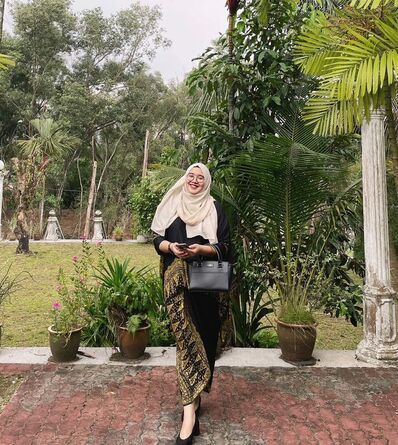
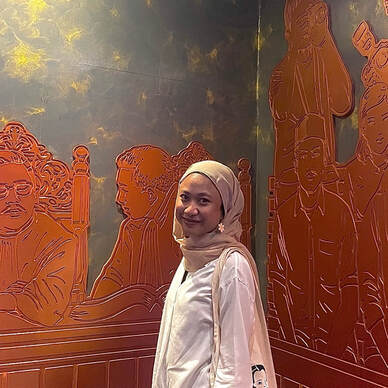
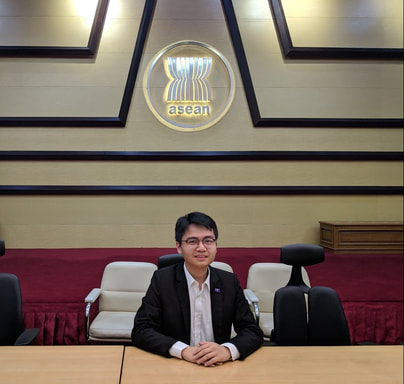
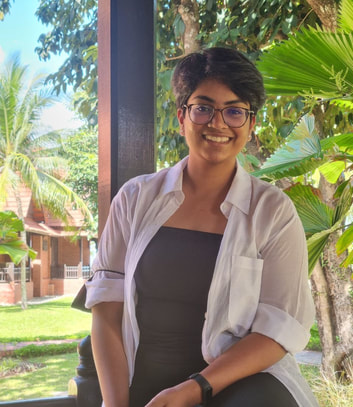
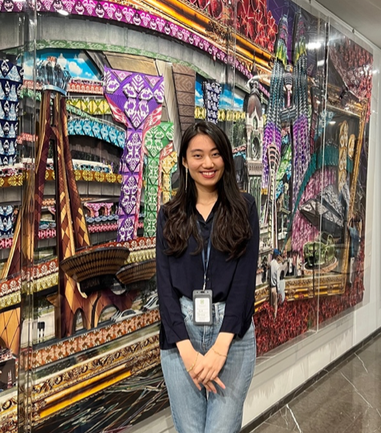

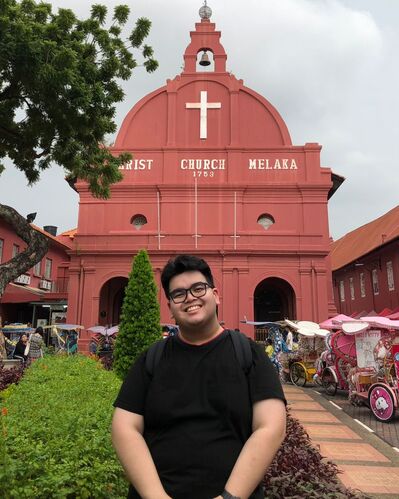
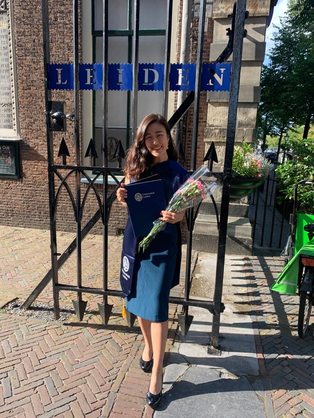
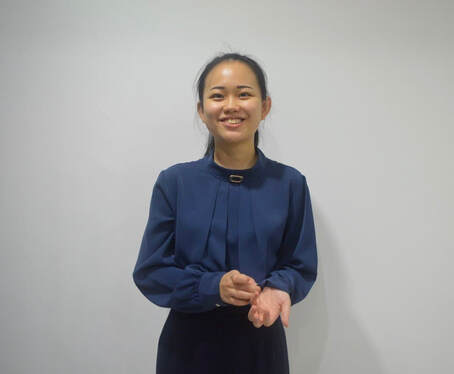
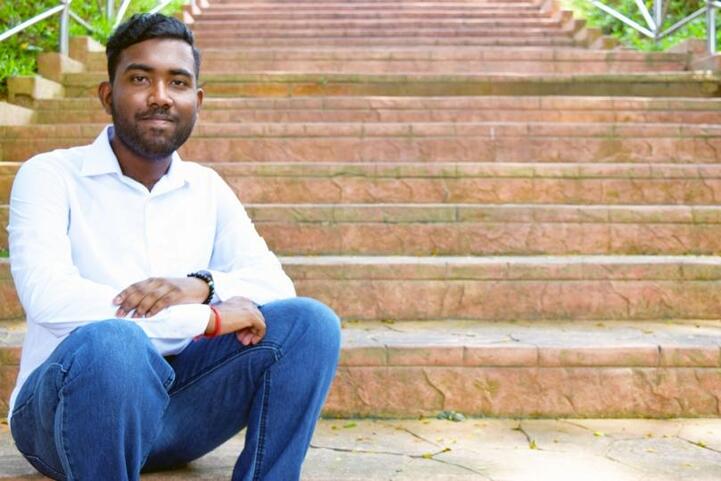

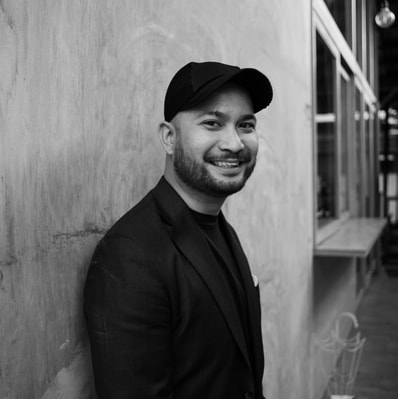
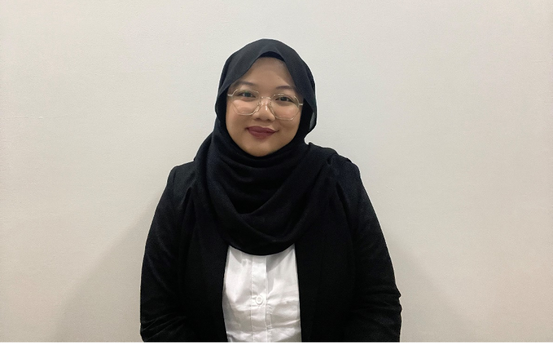


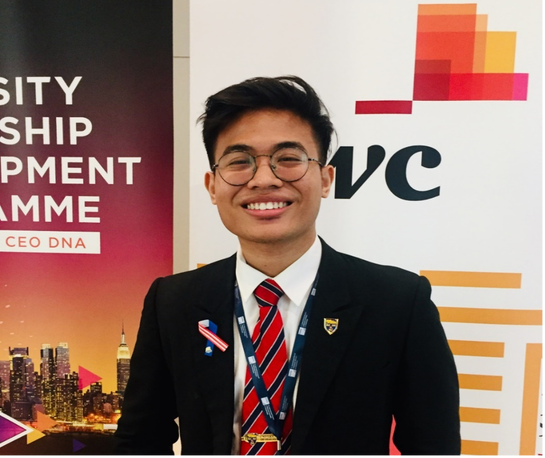

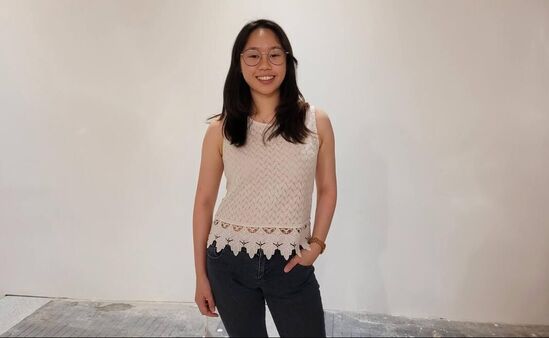
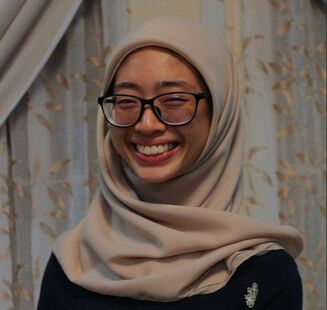
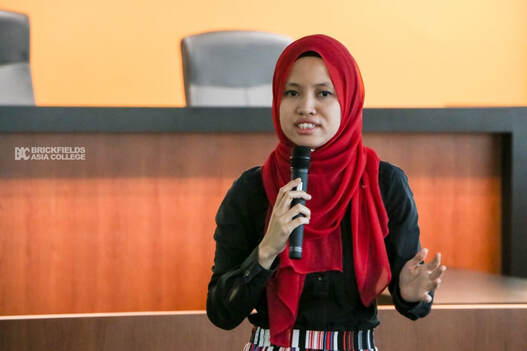


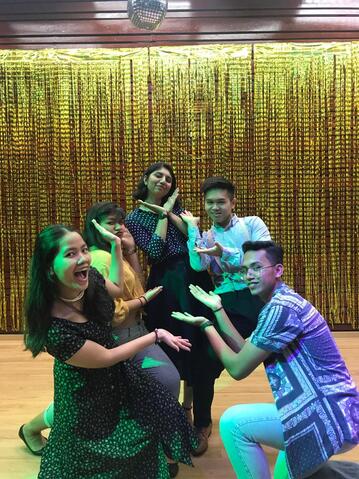
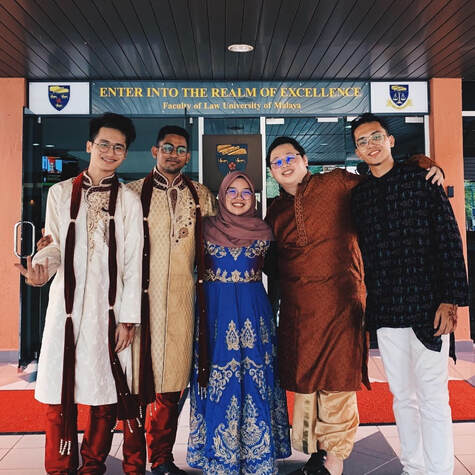
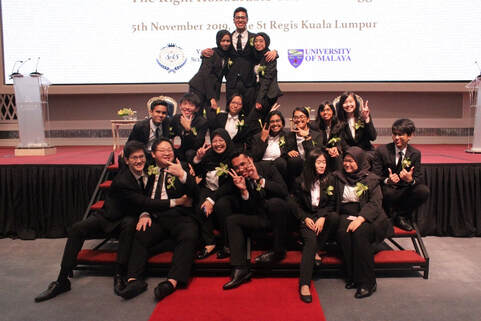
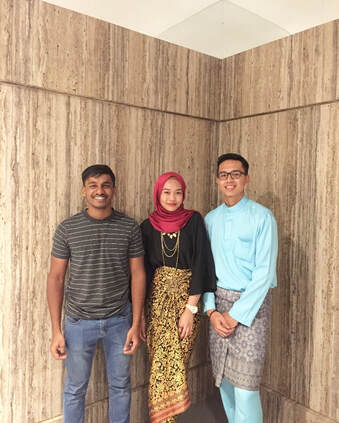
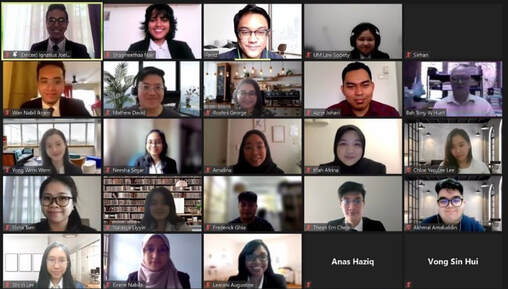
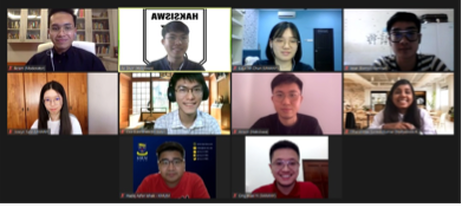
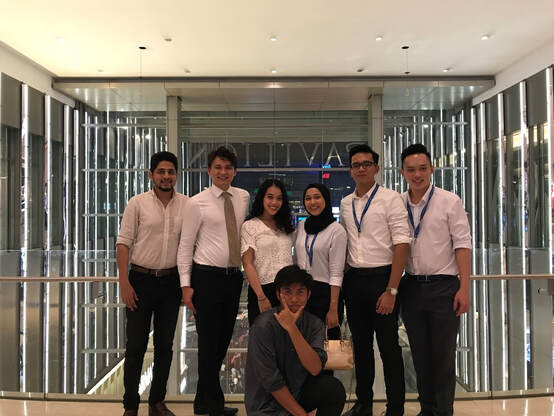
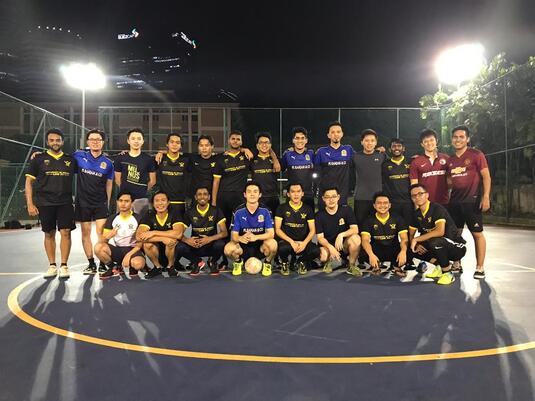
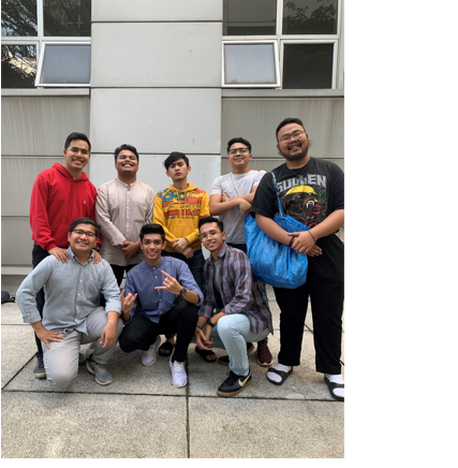
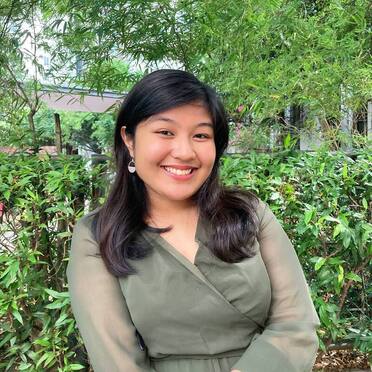
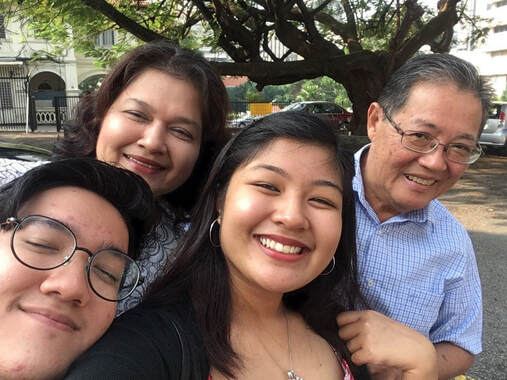
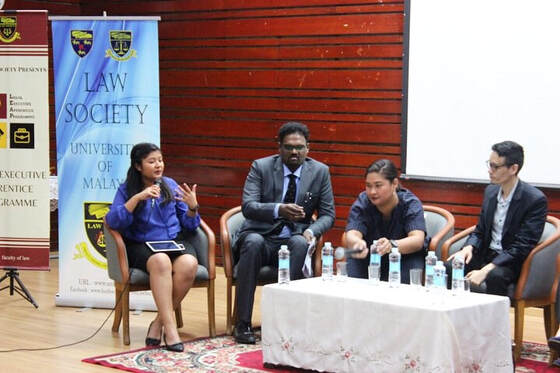
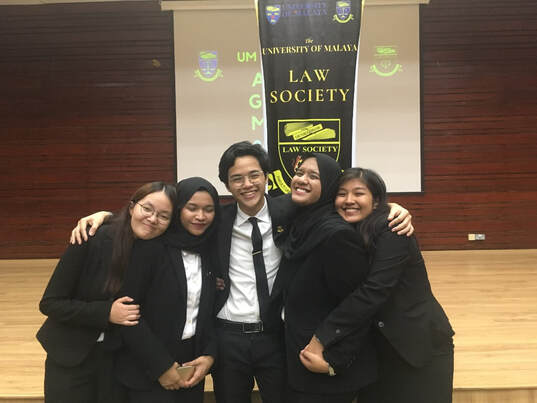
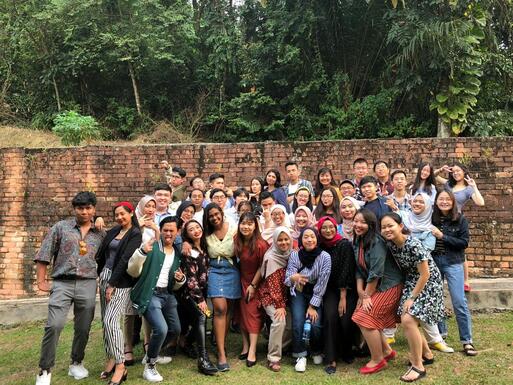
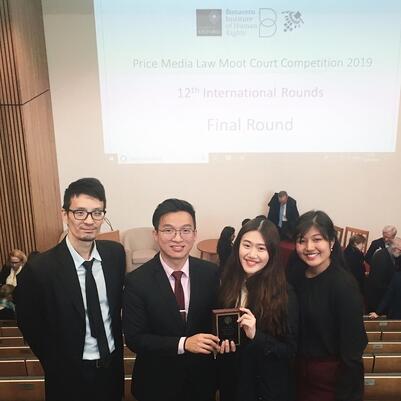
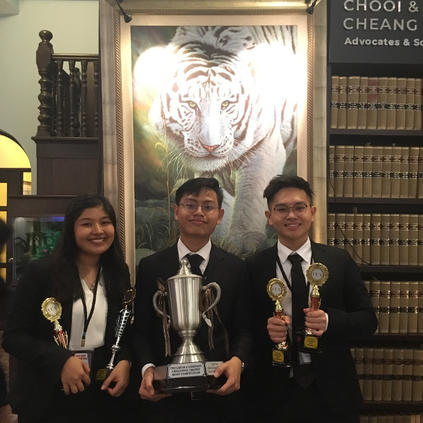
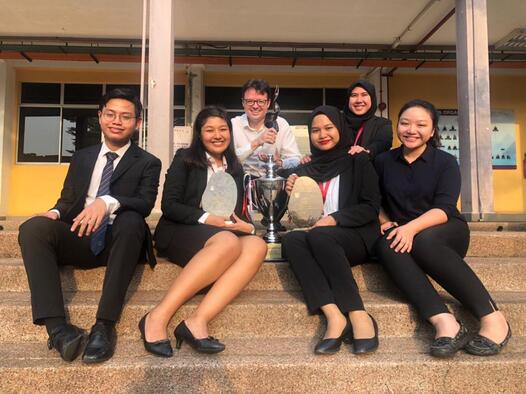
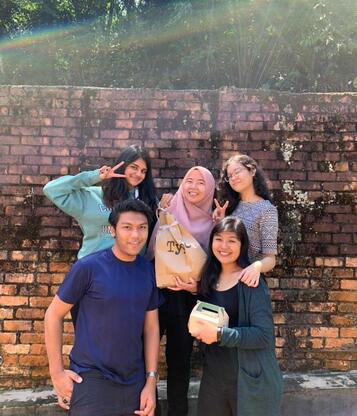
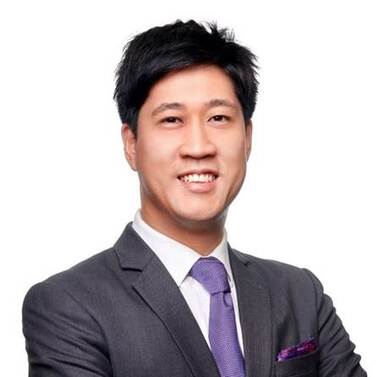
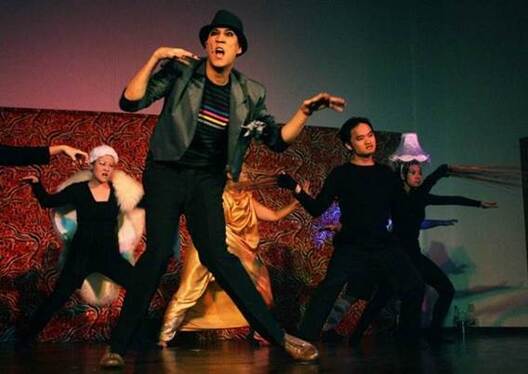
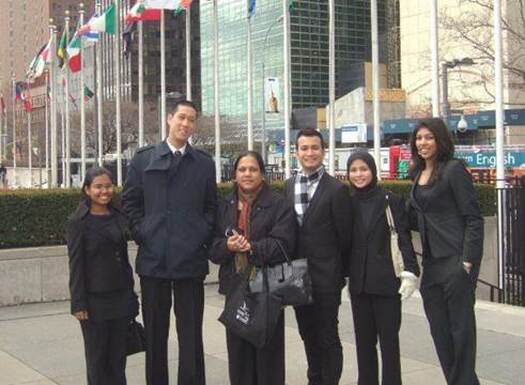
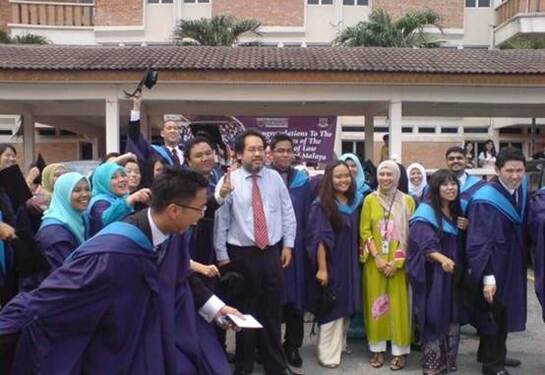
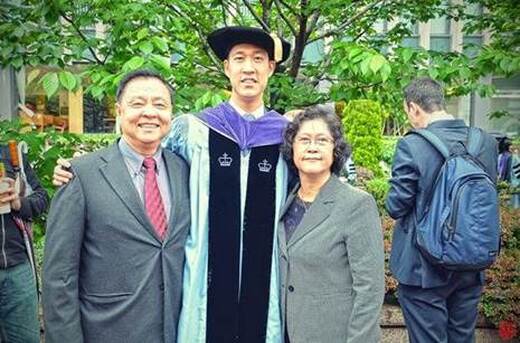

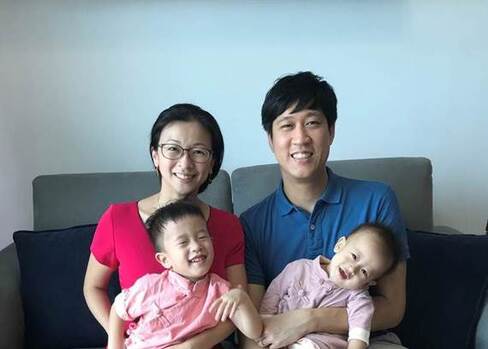
 RSS Feed
RSS Feed